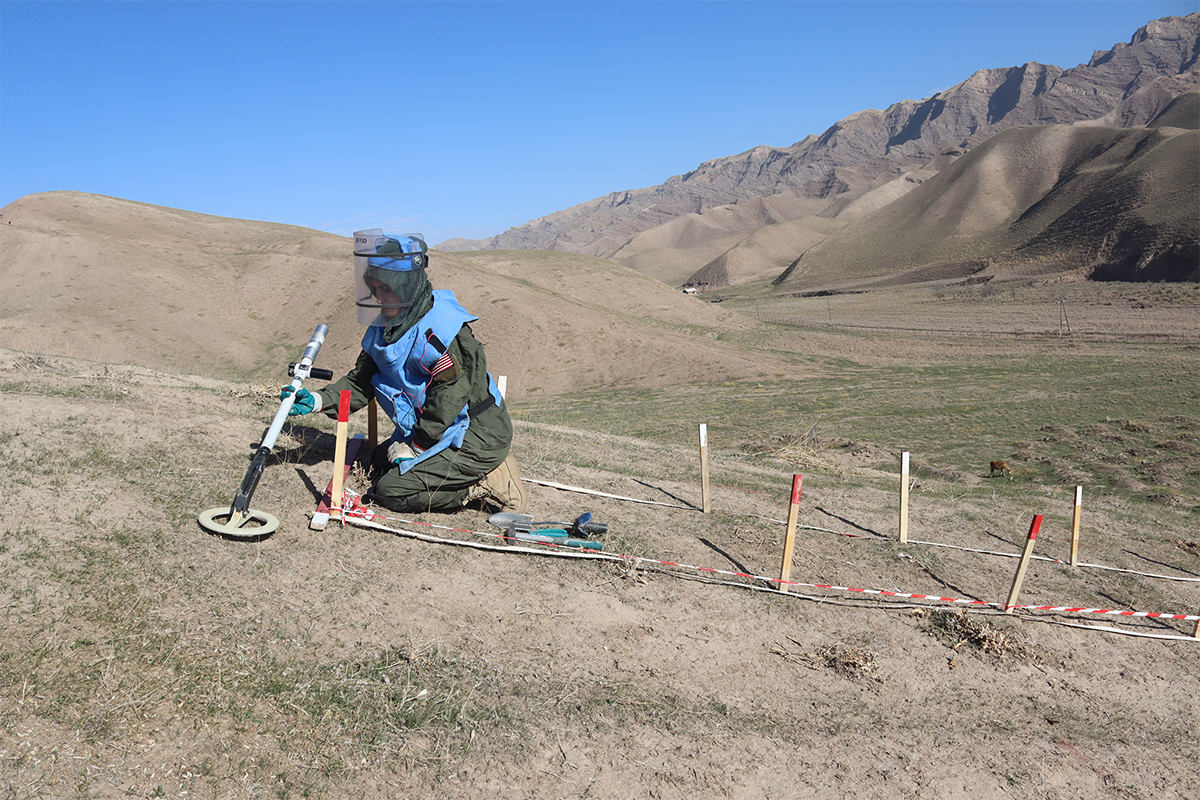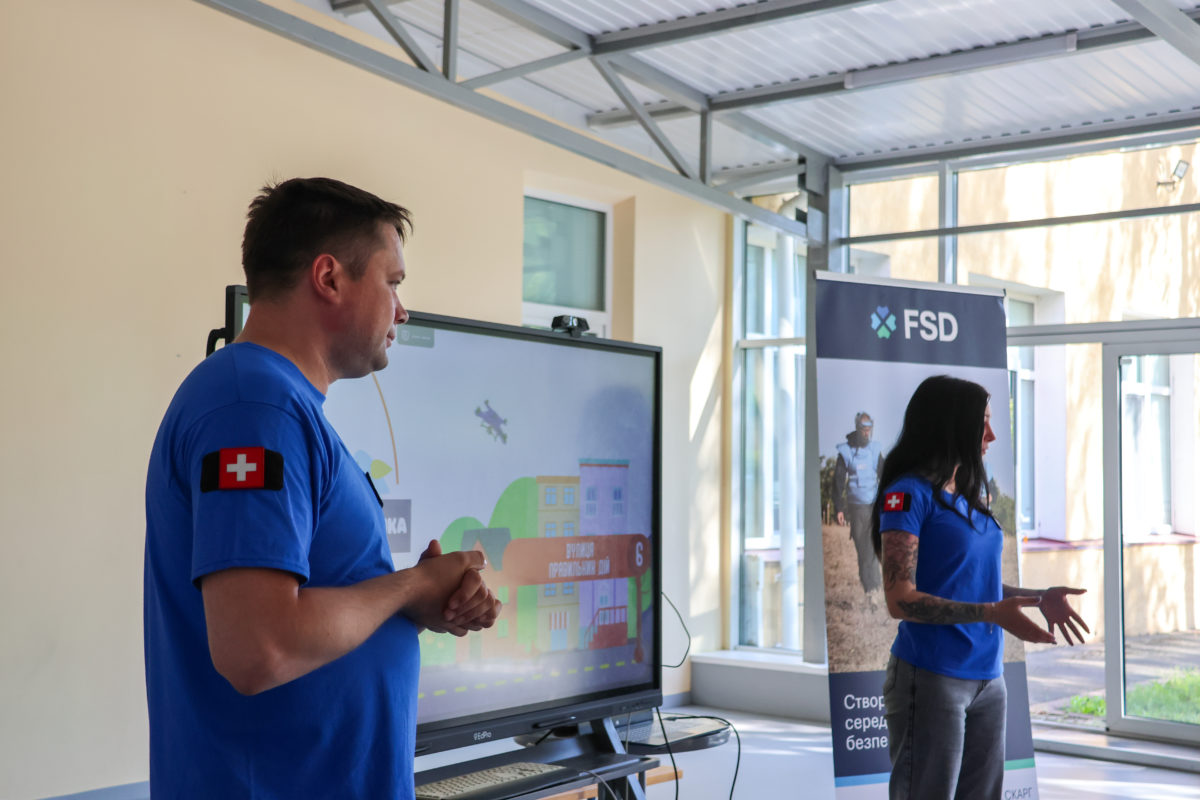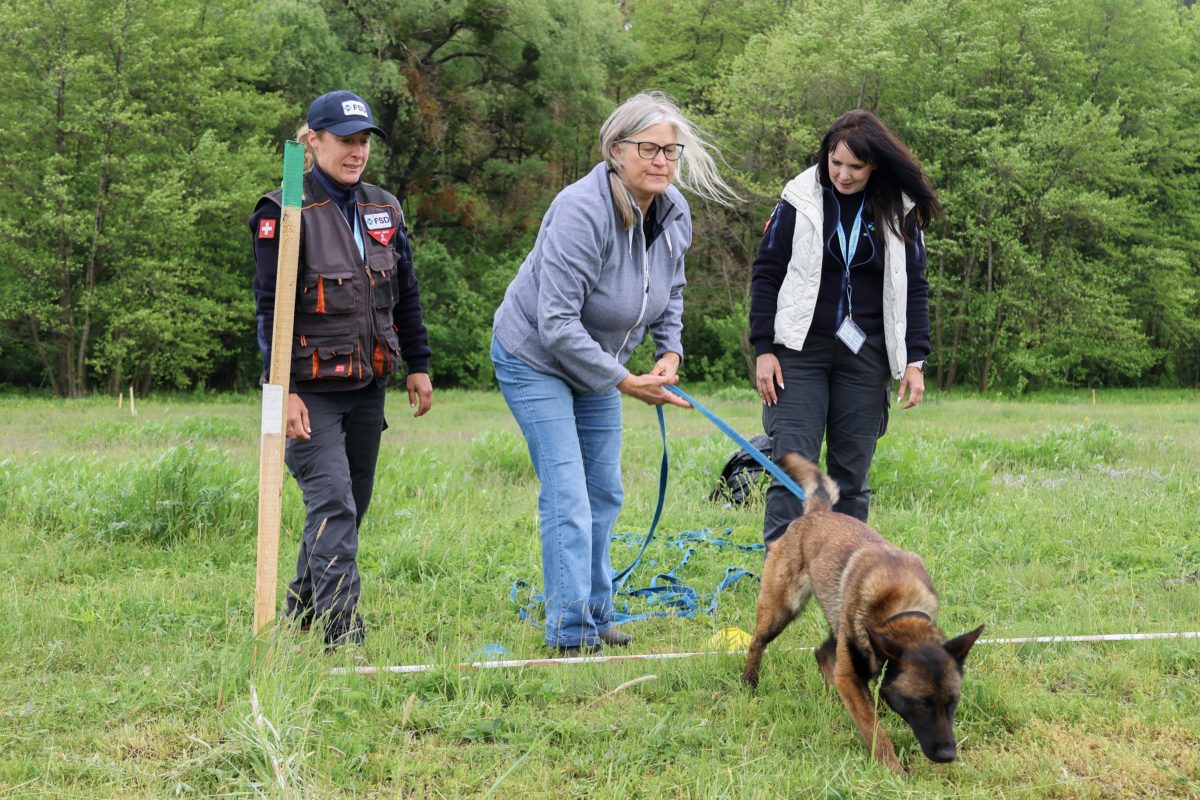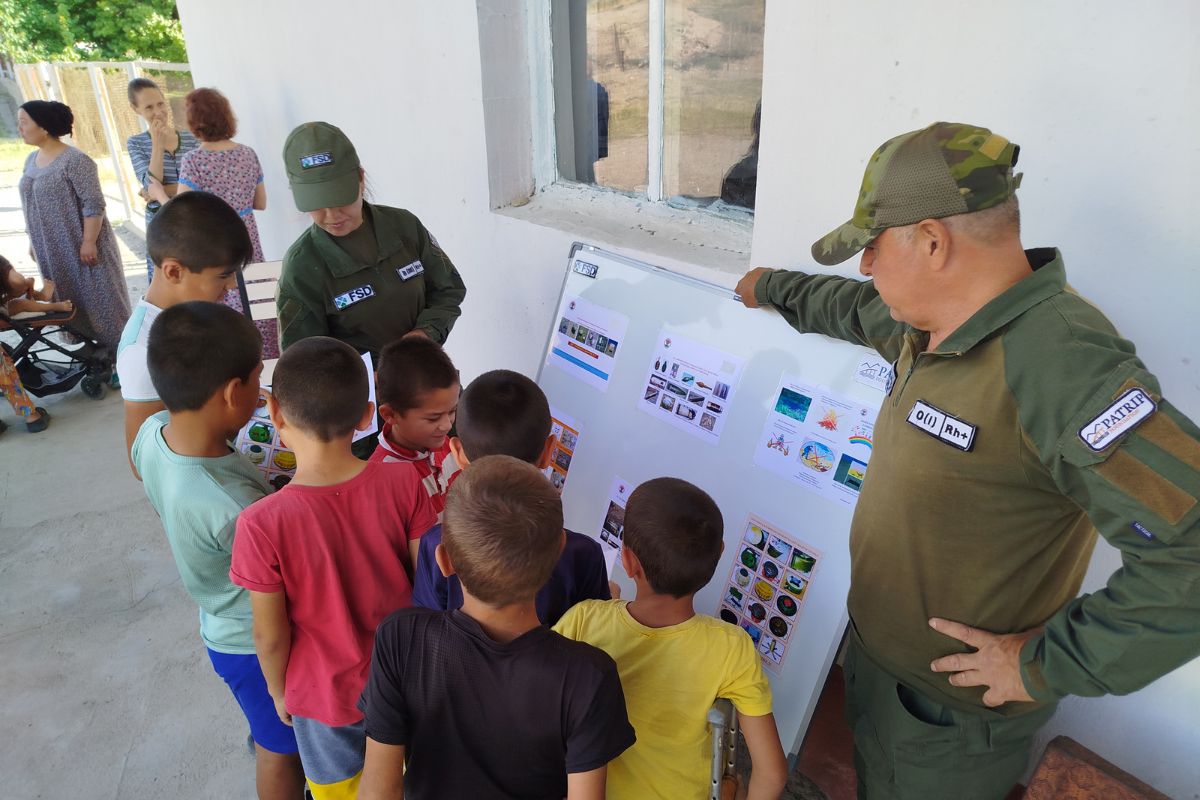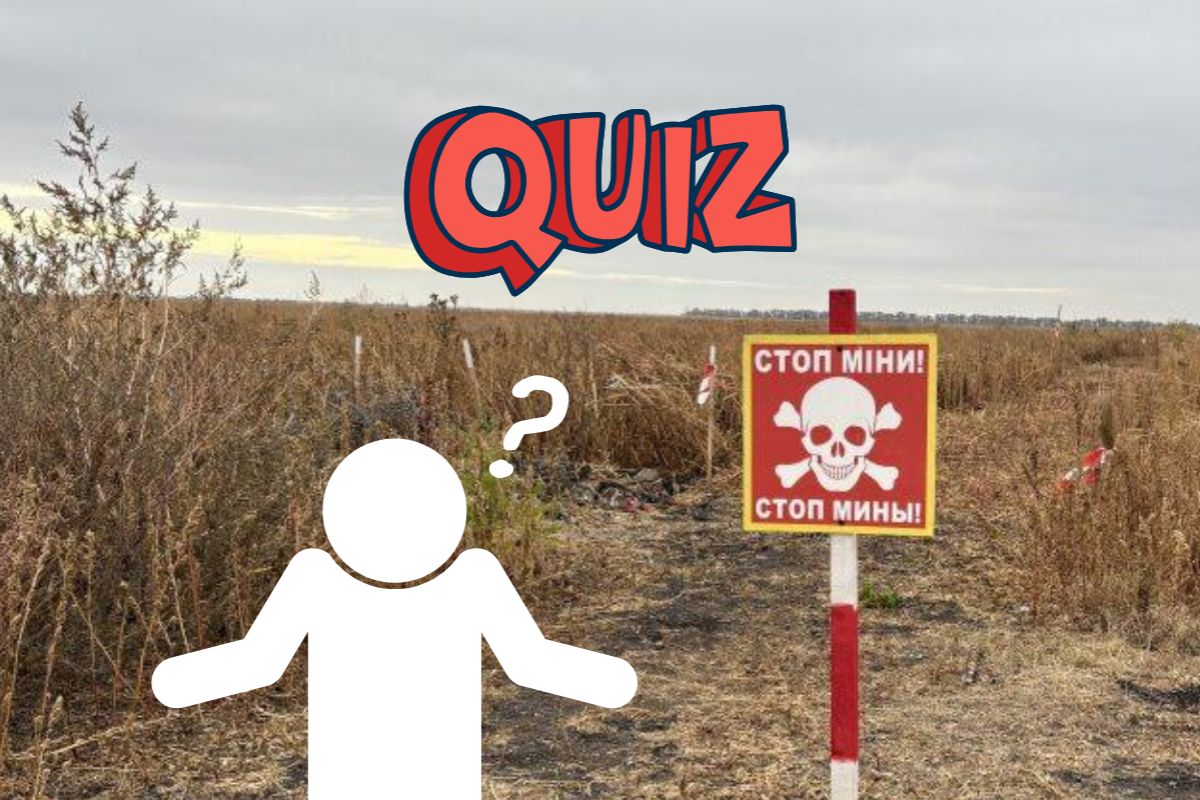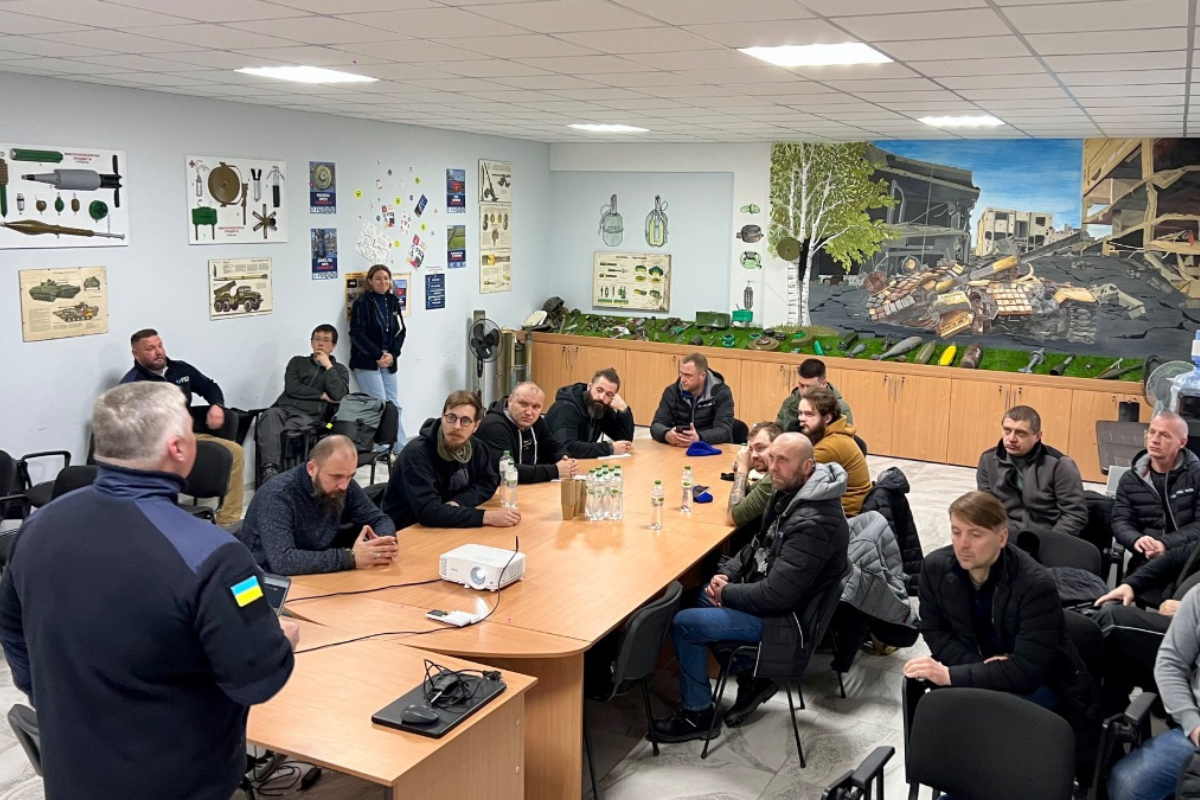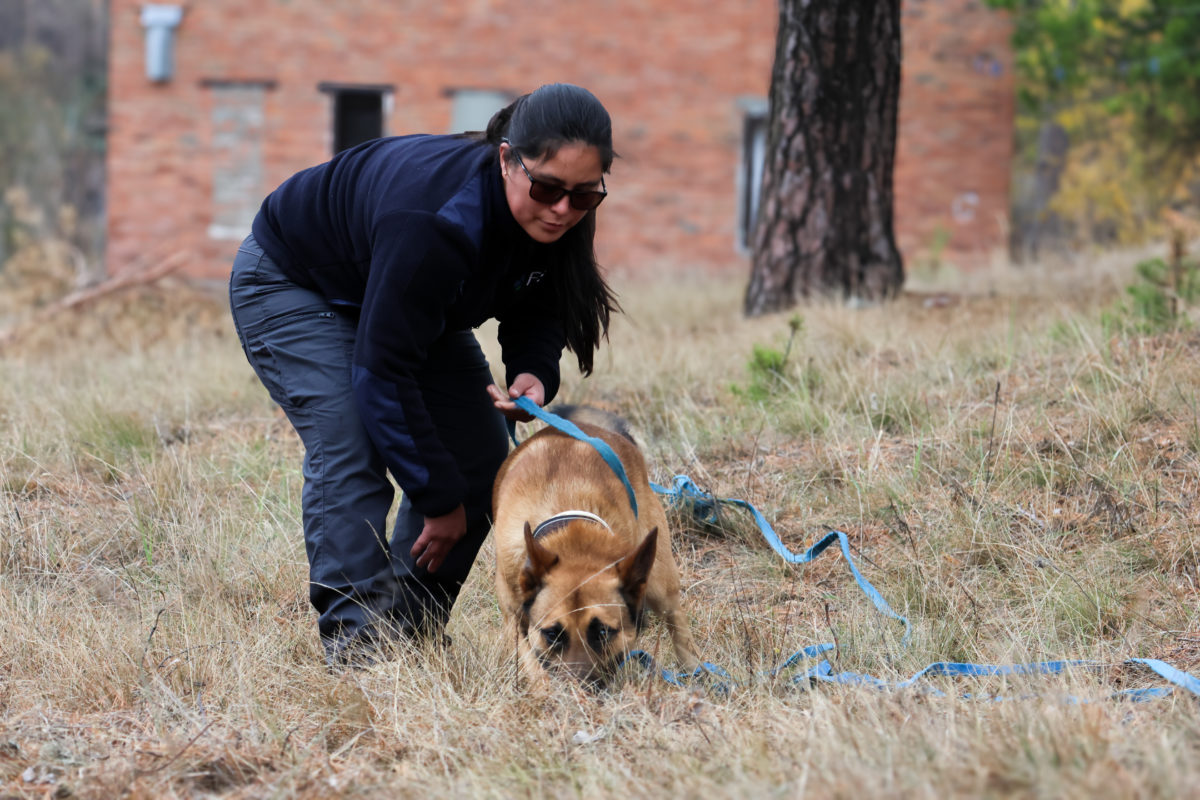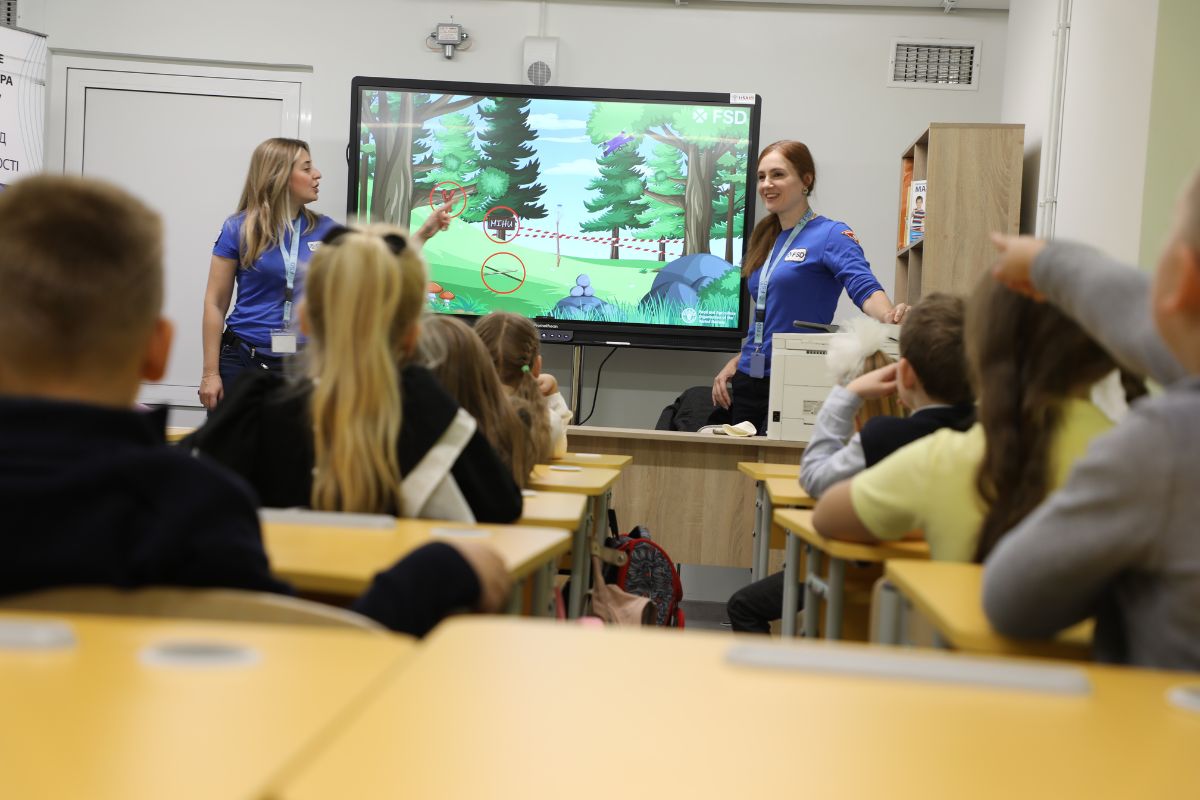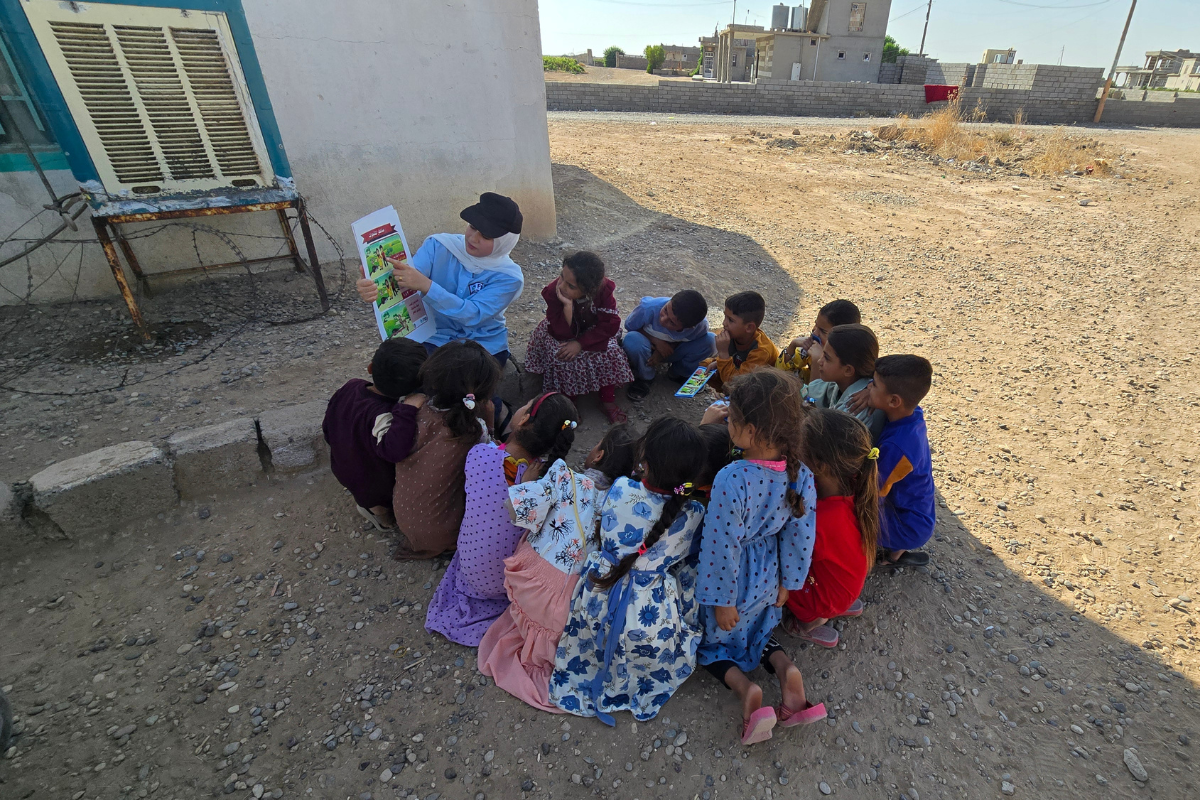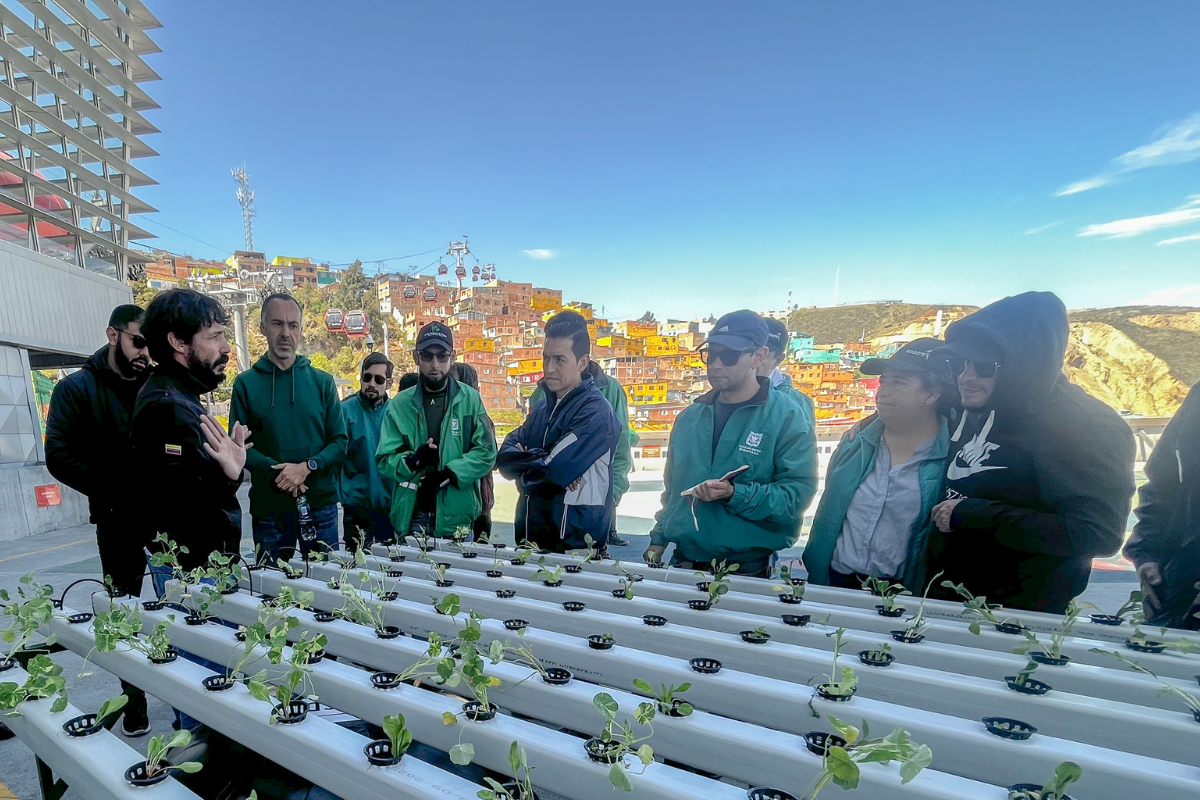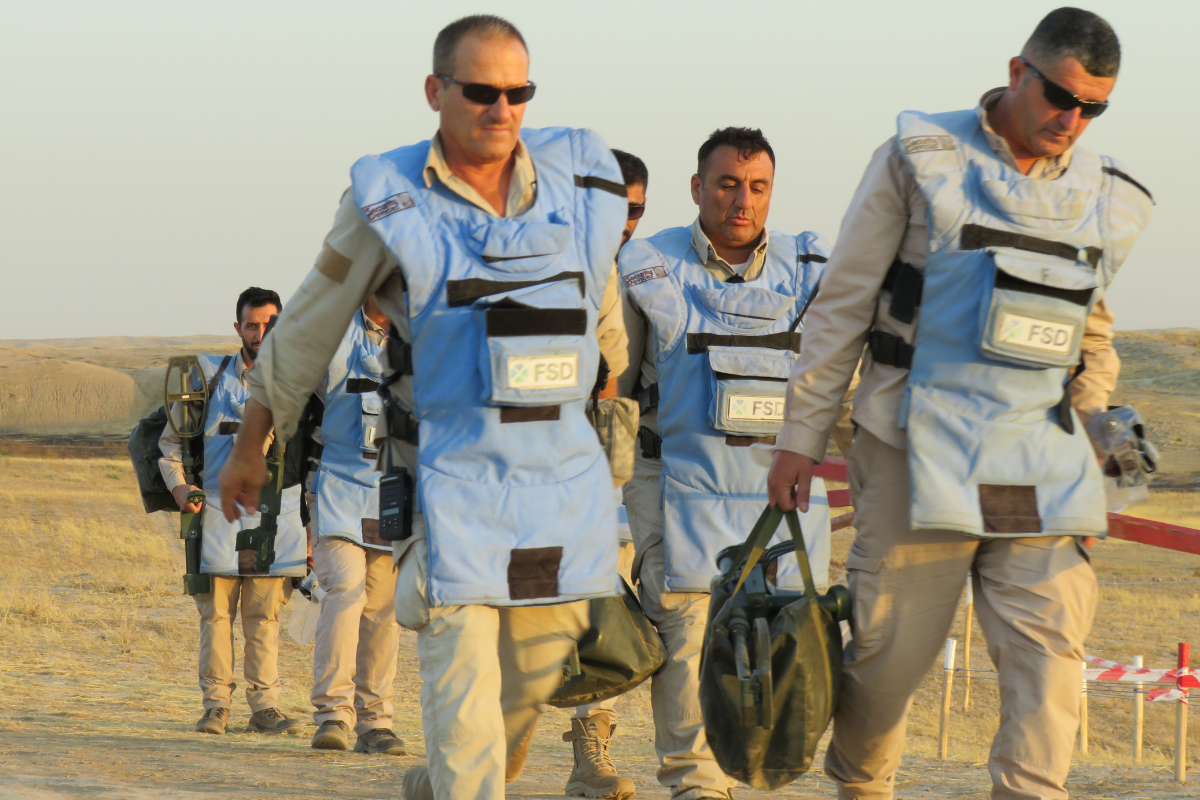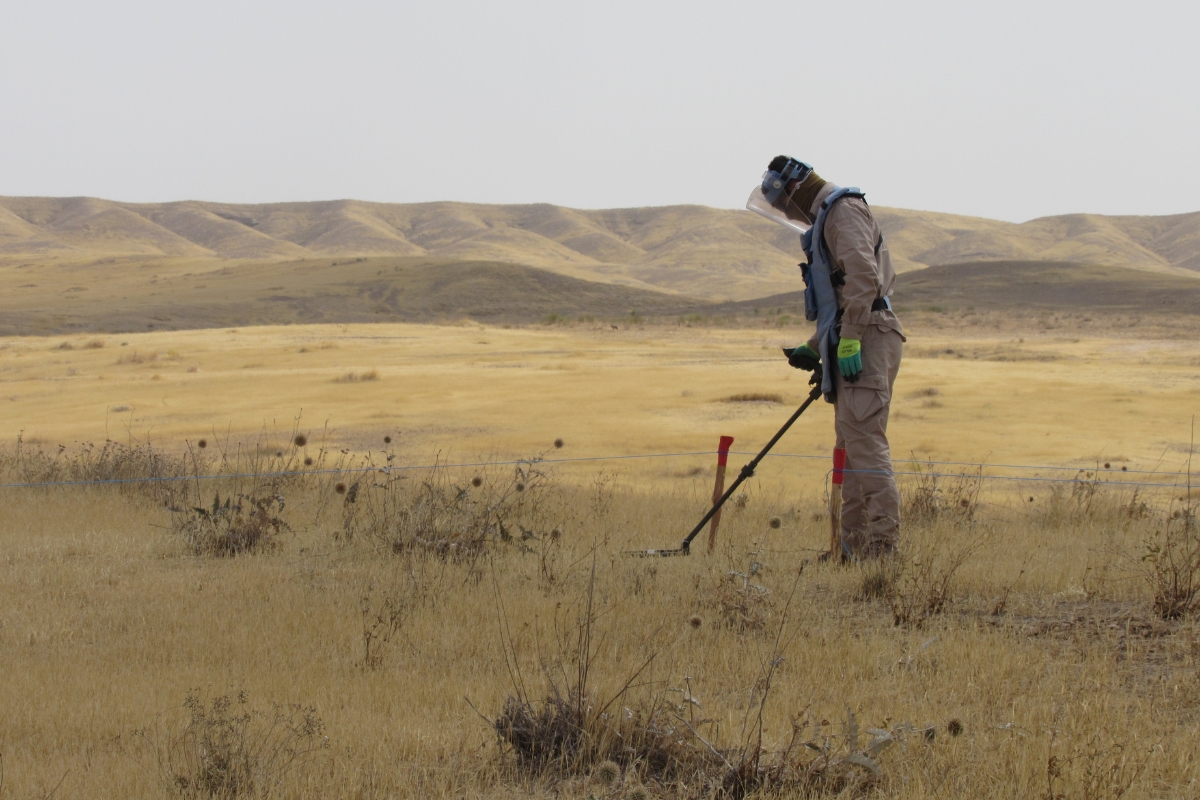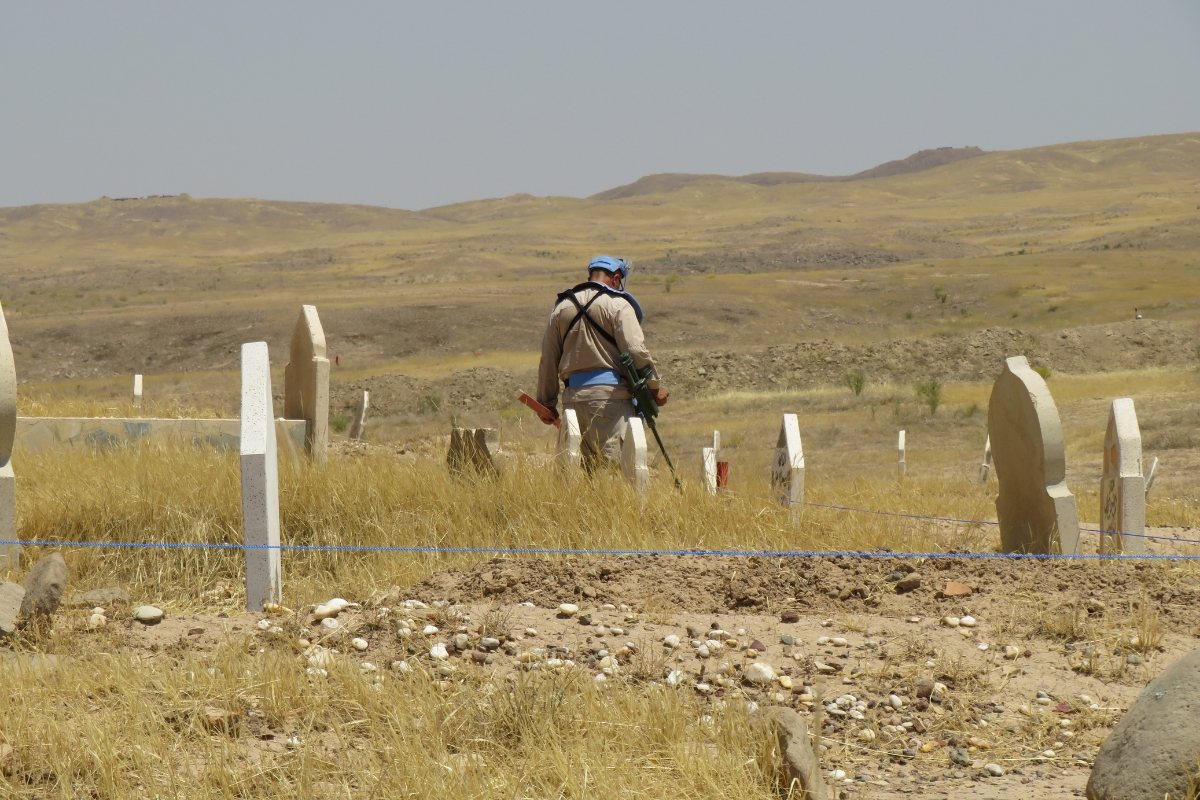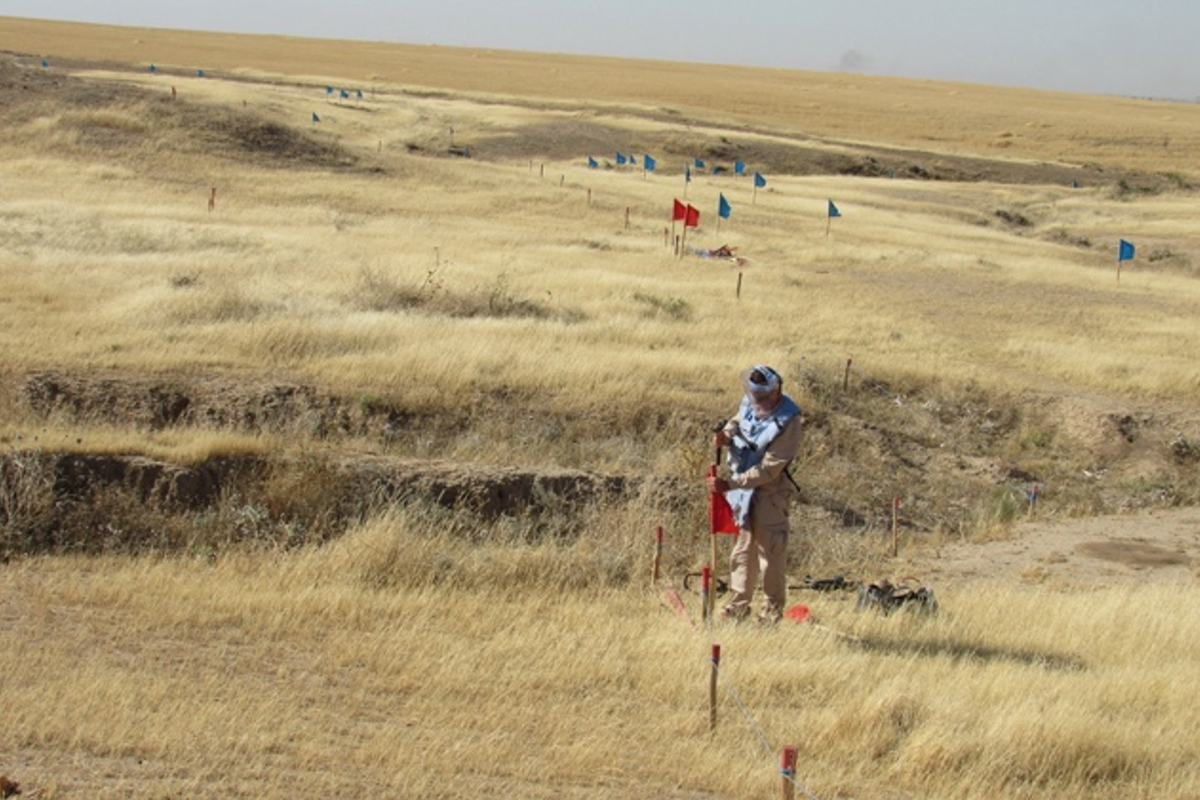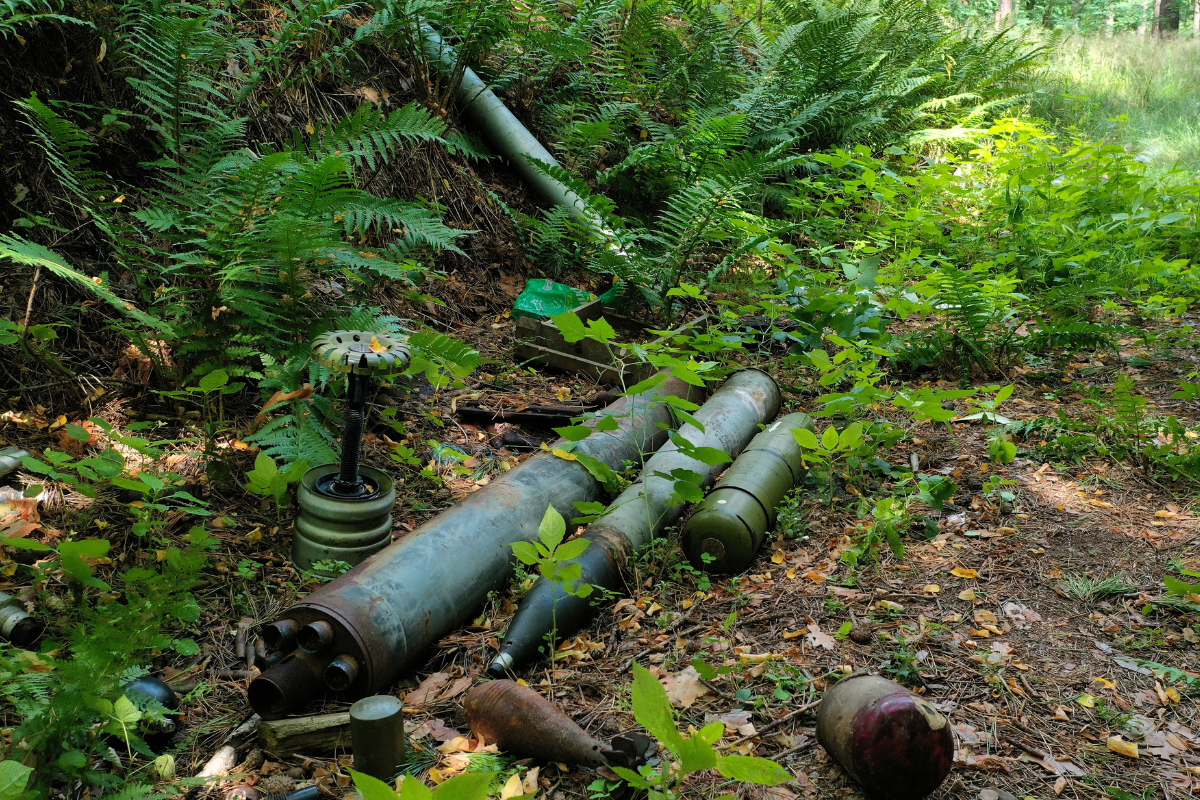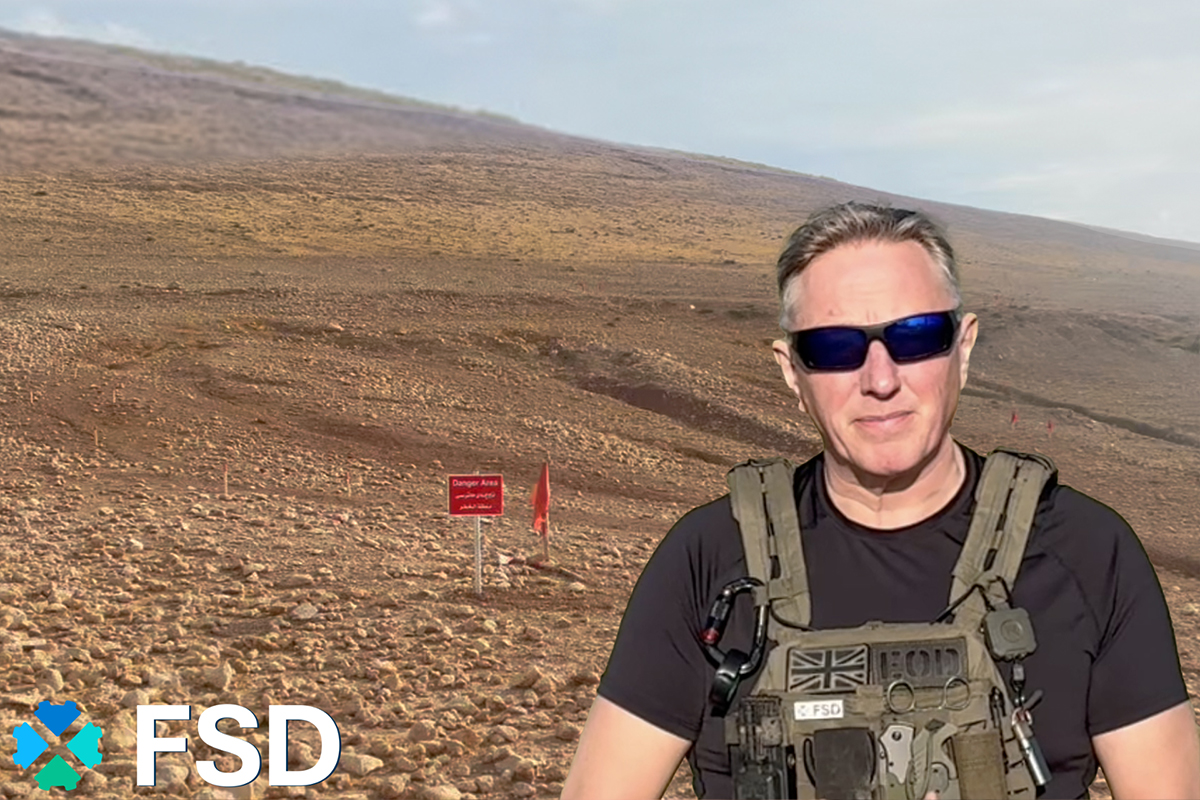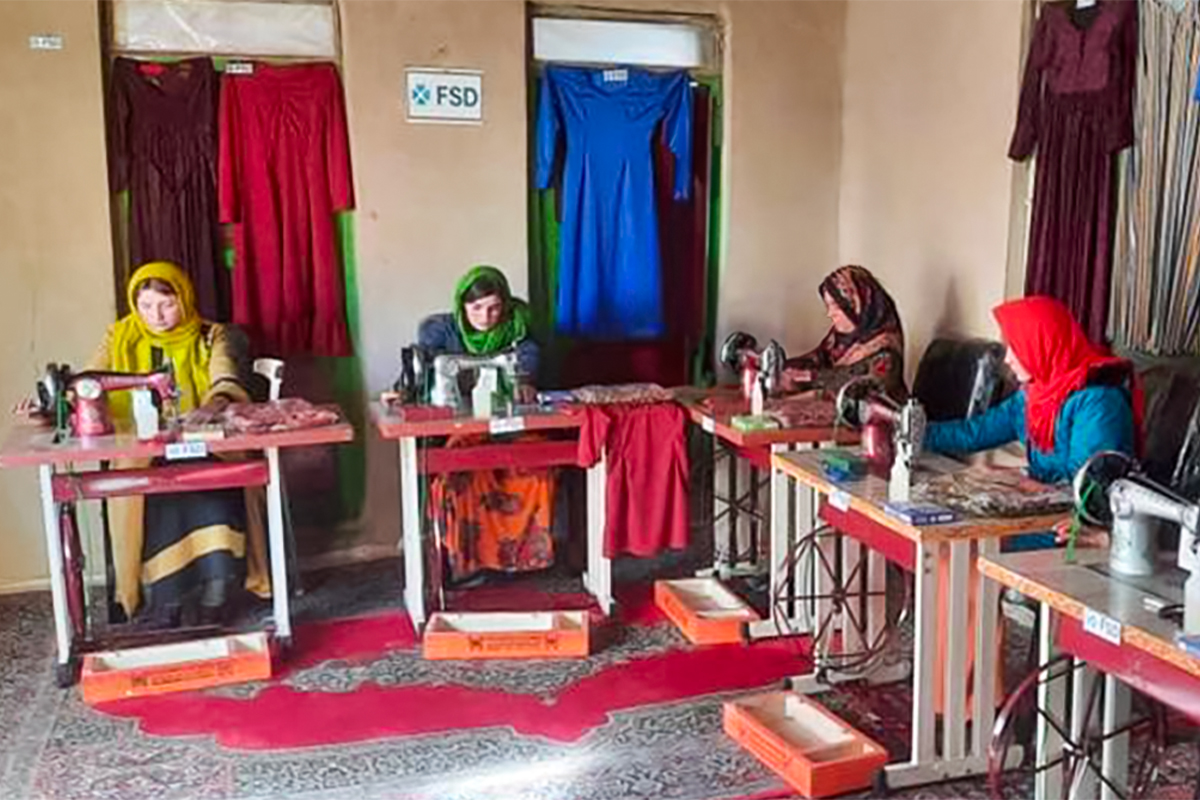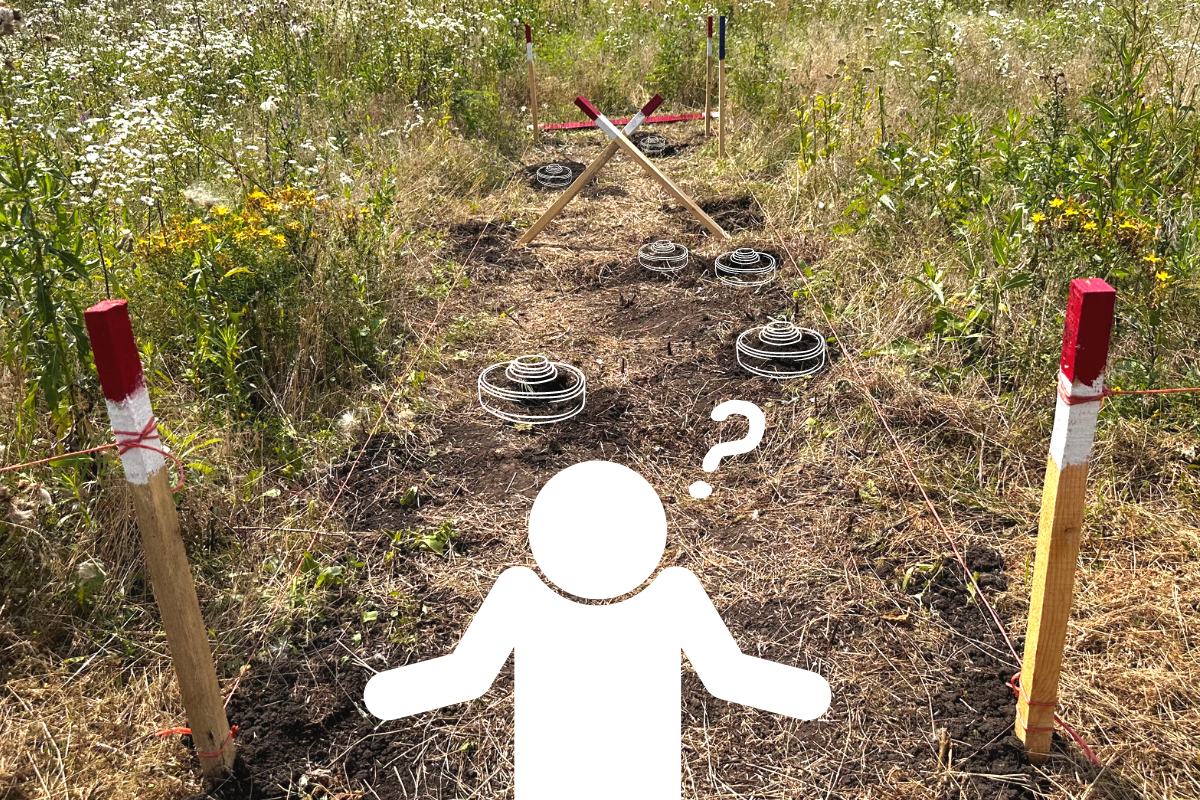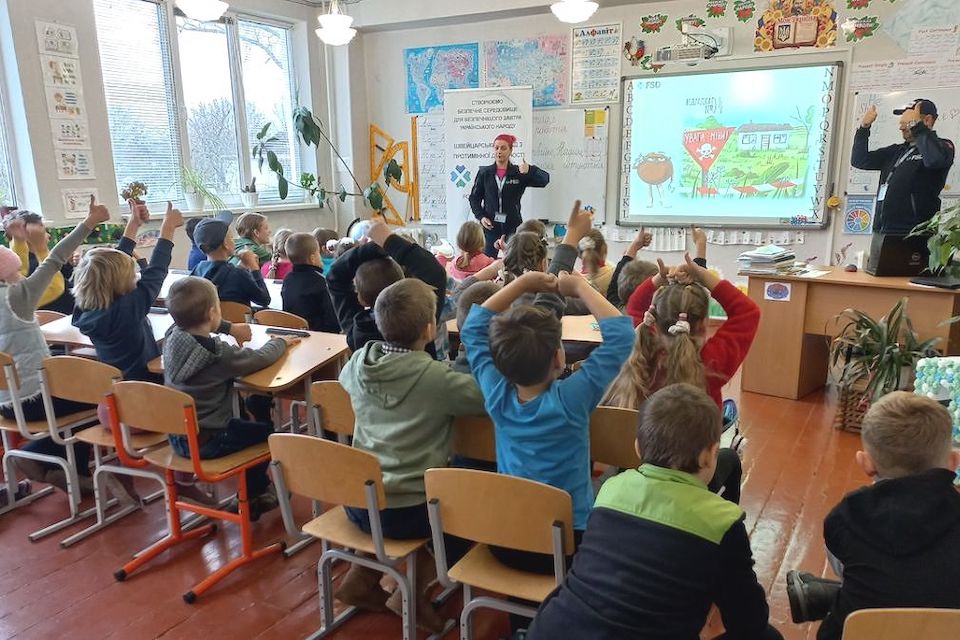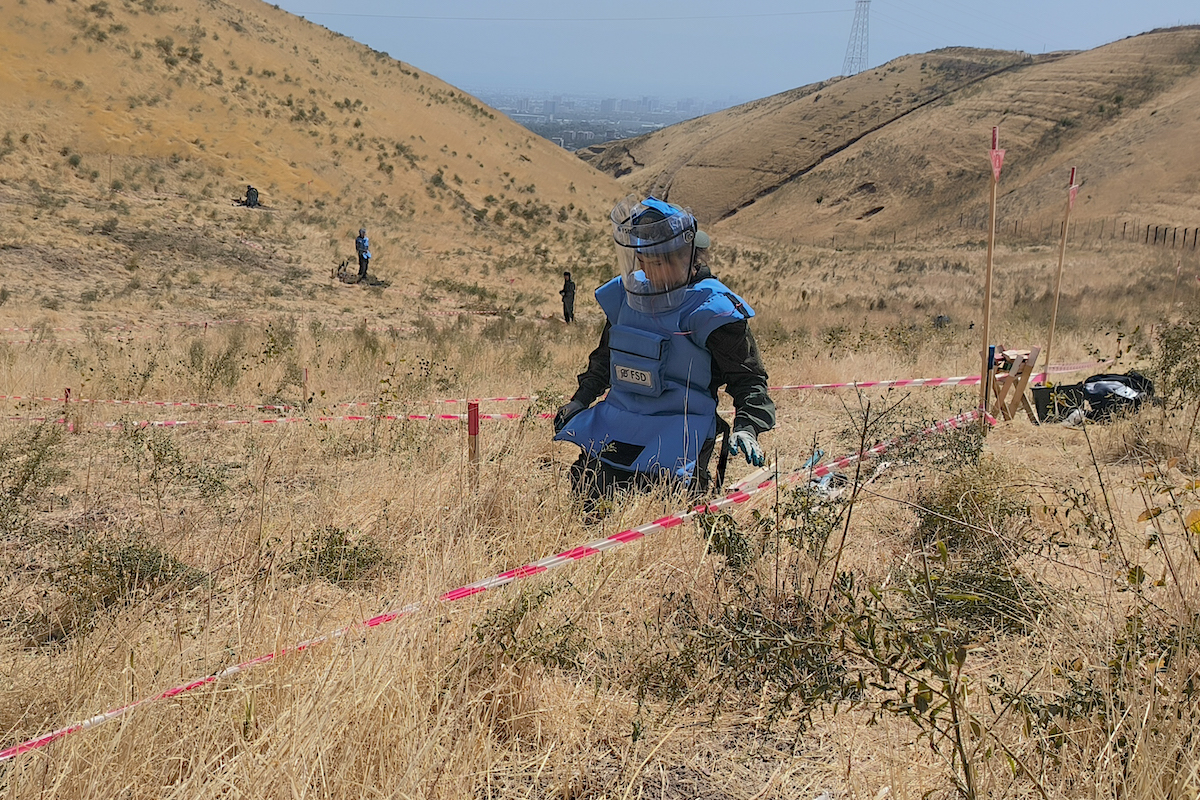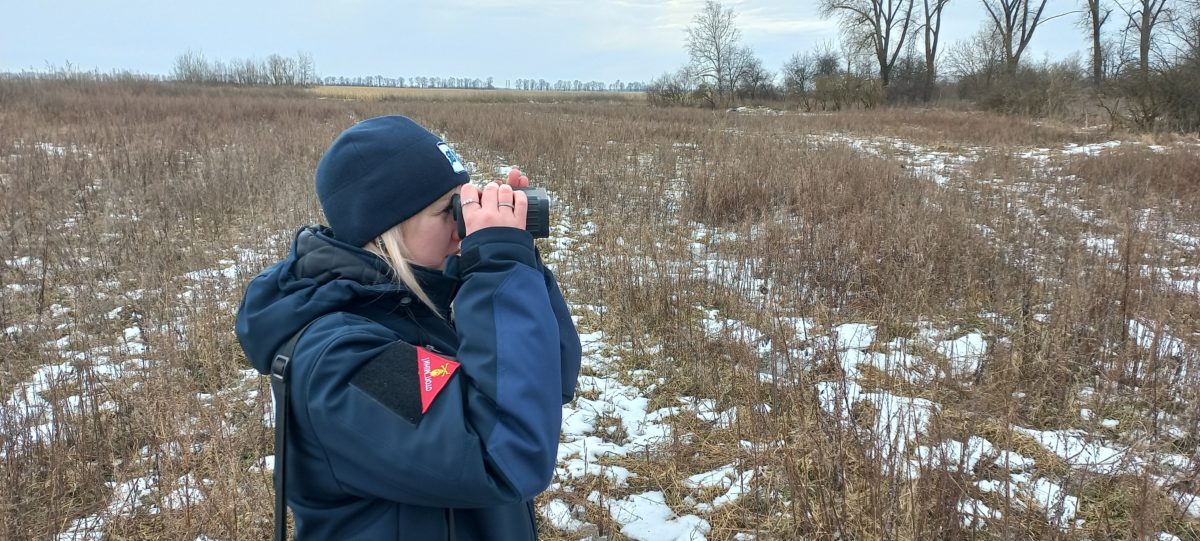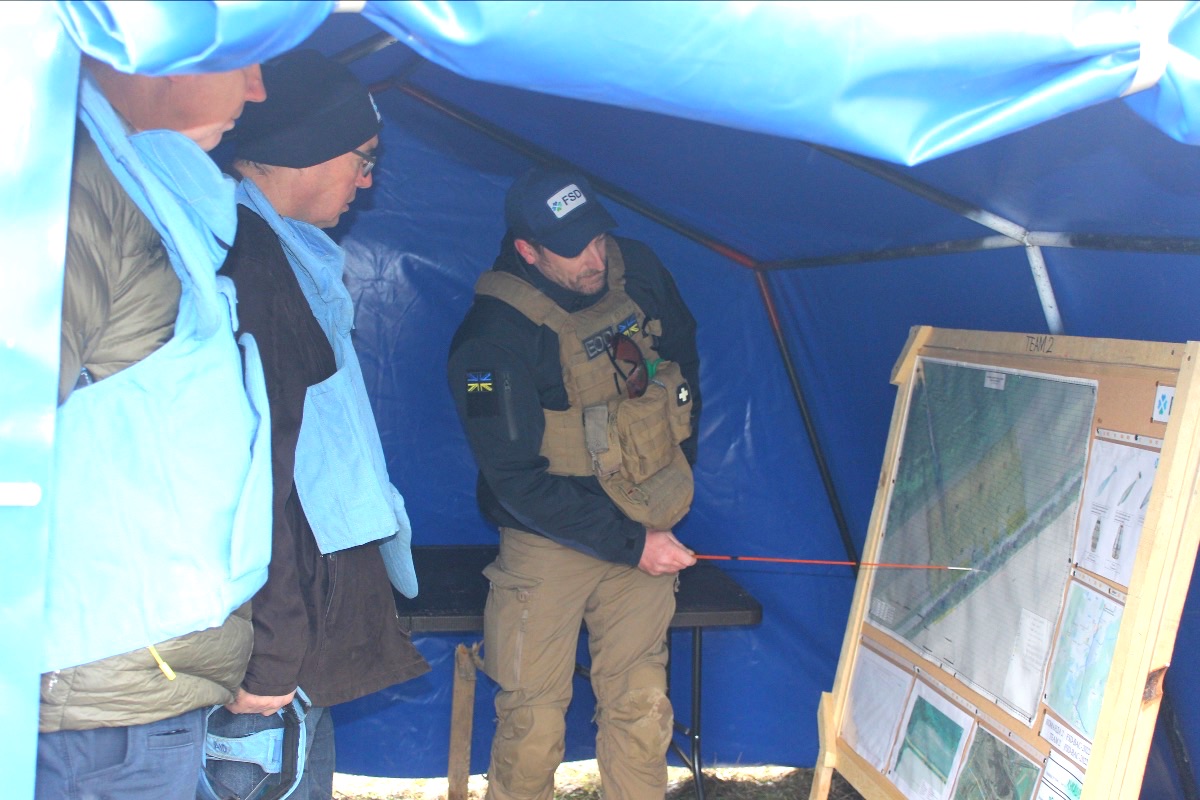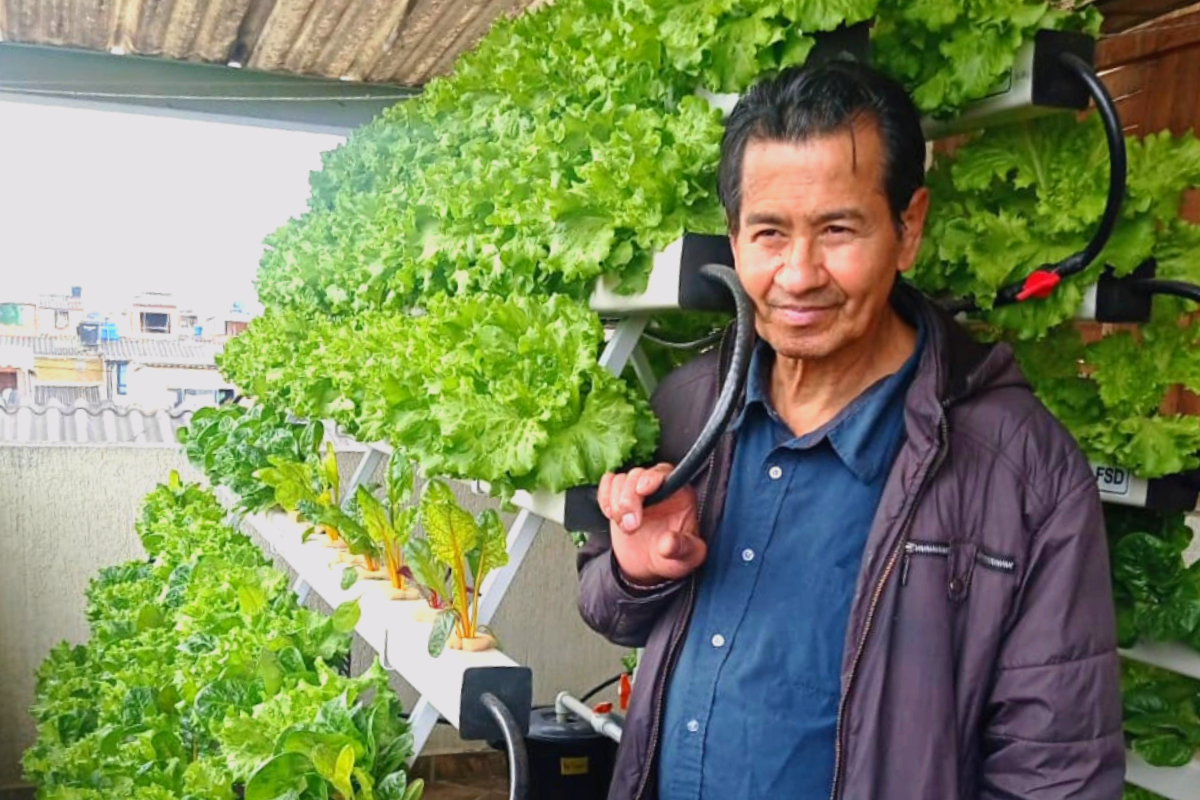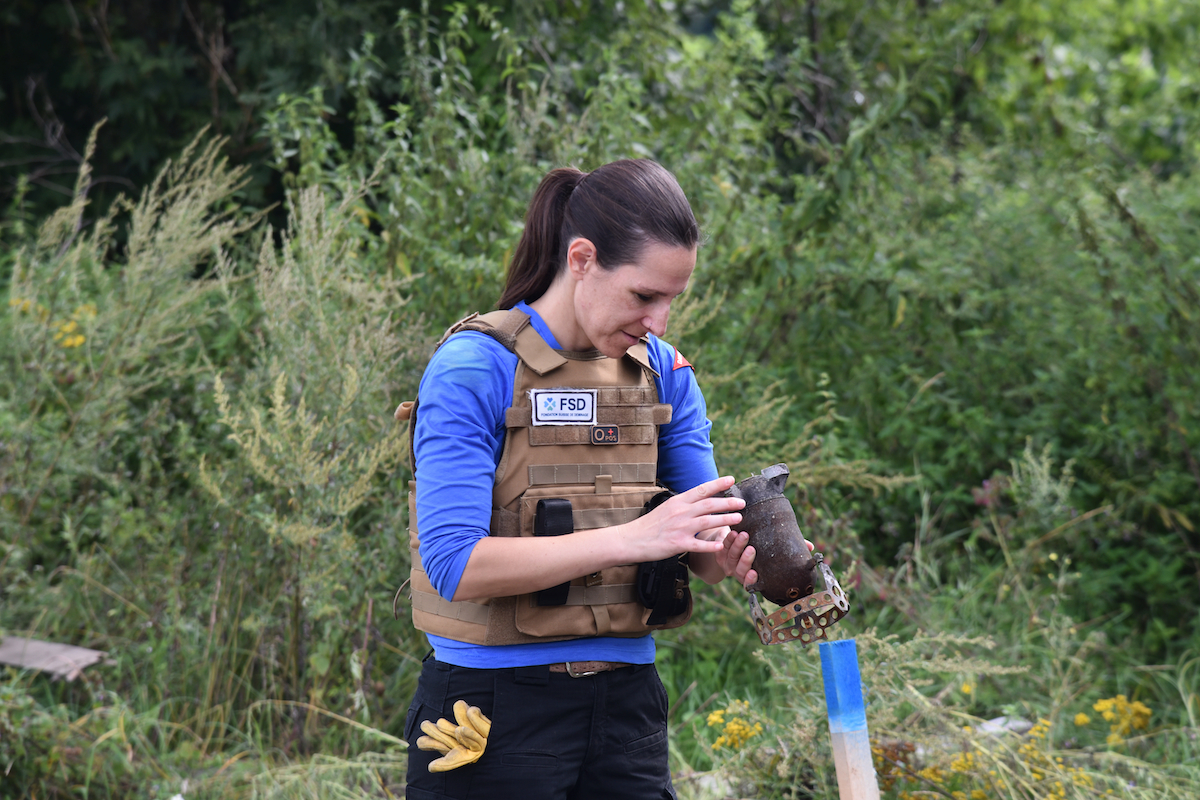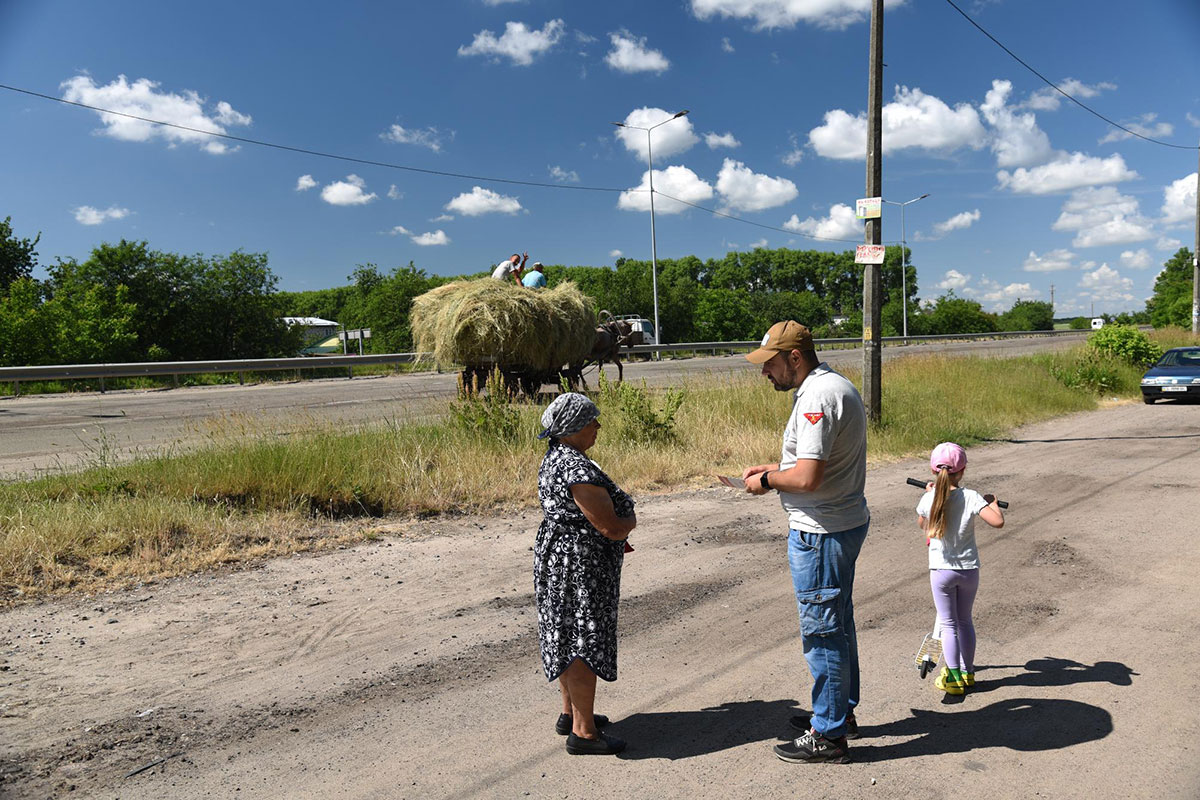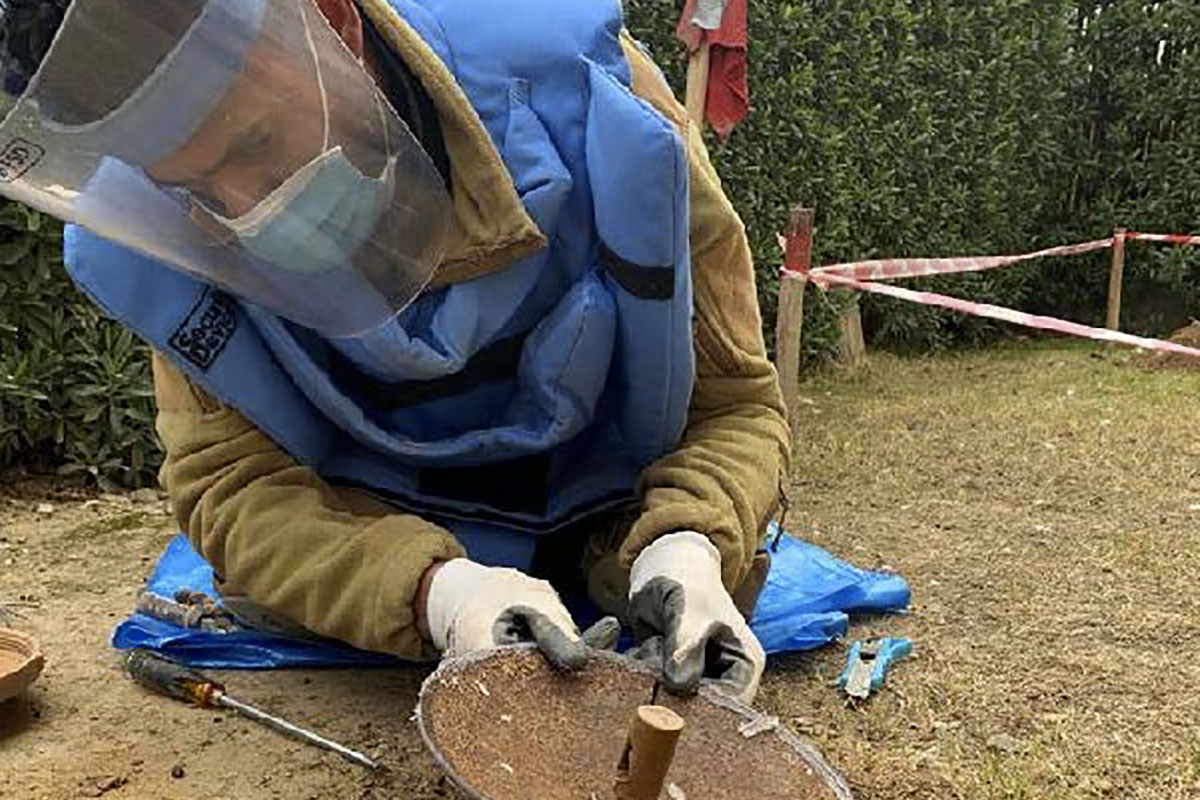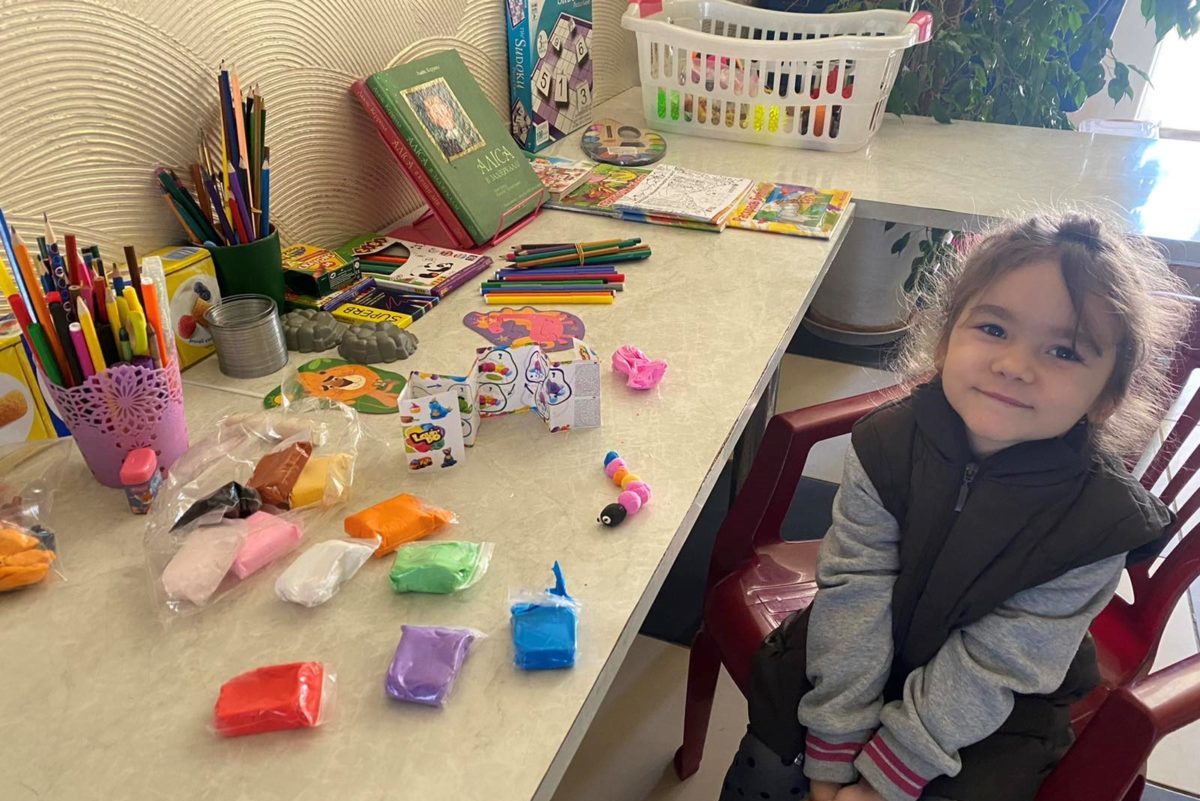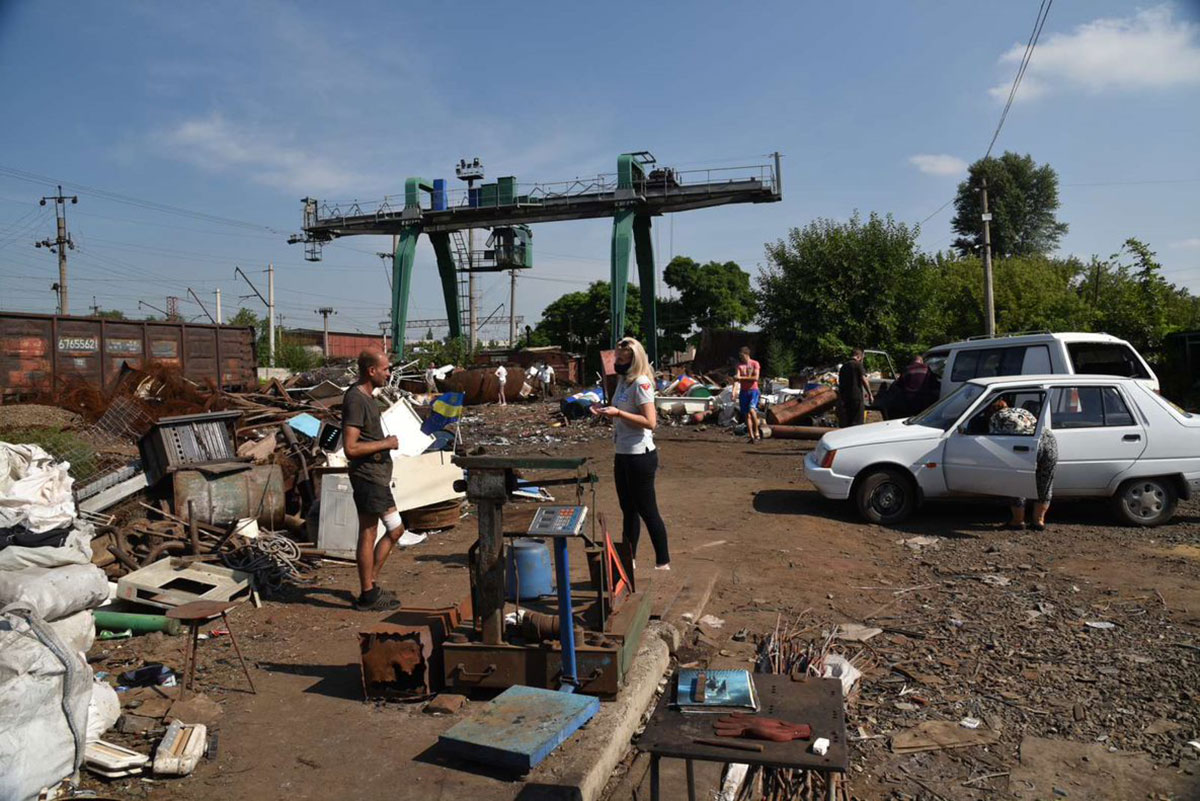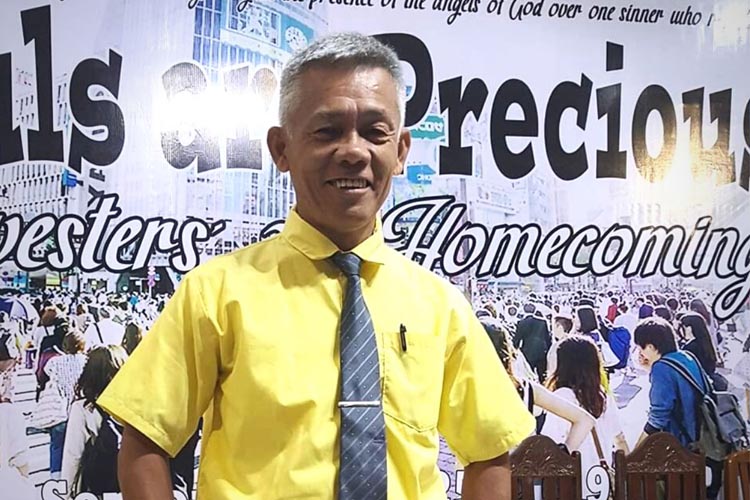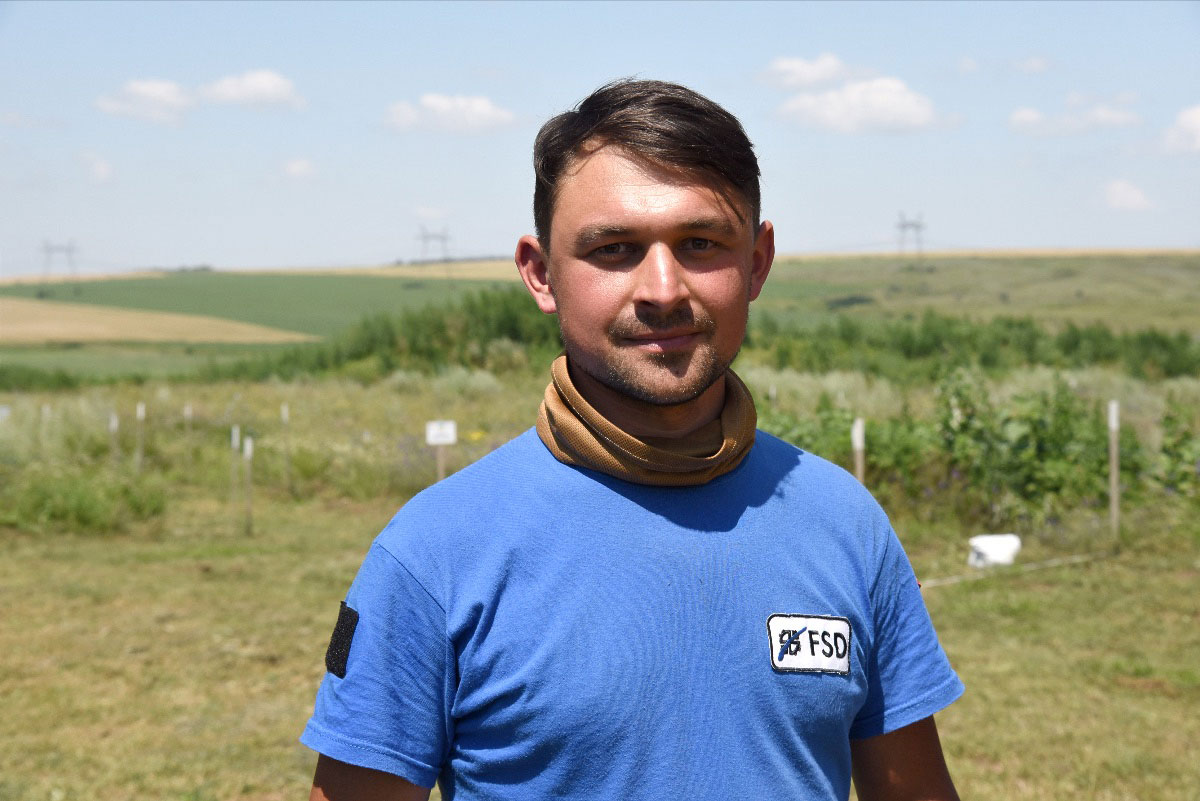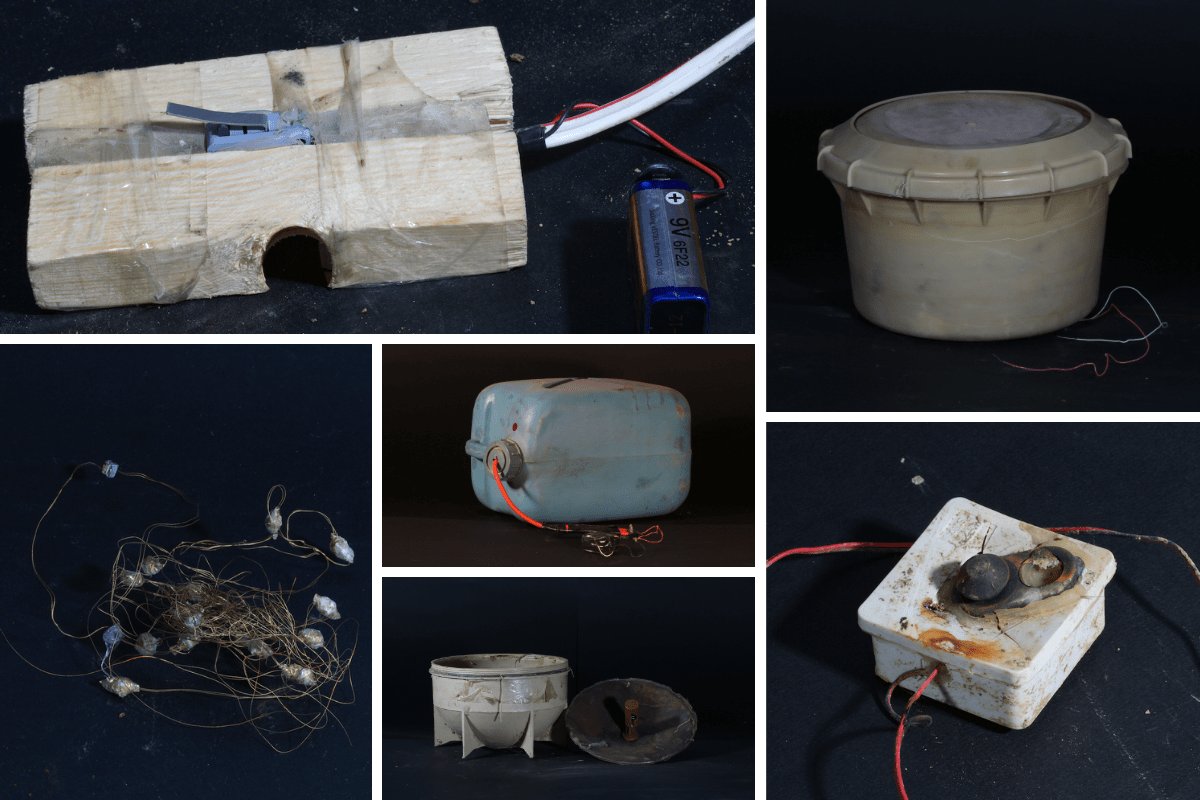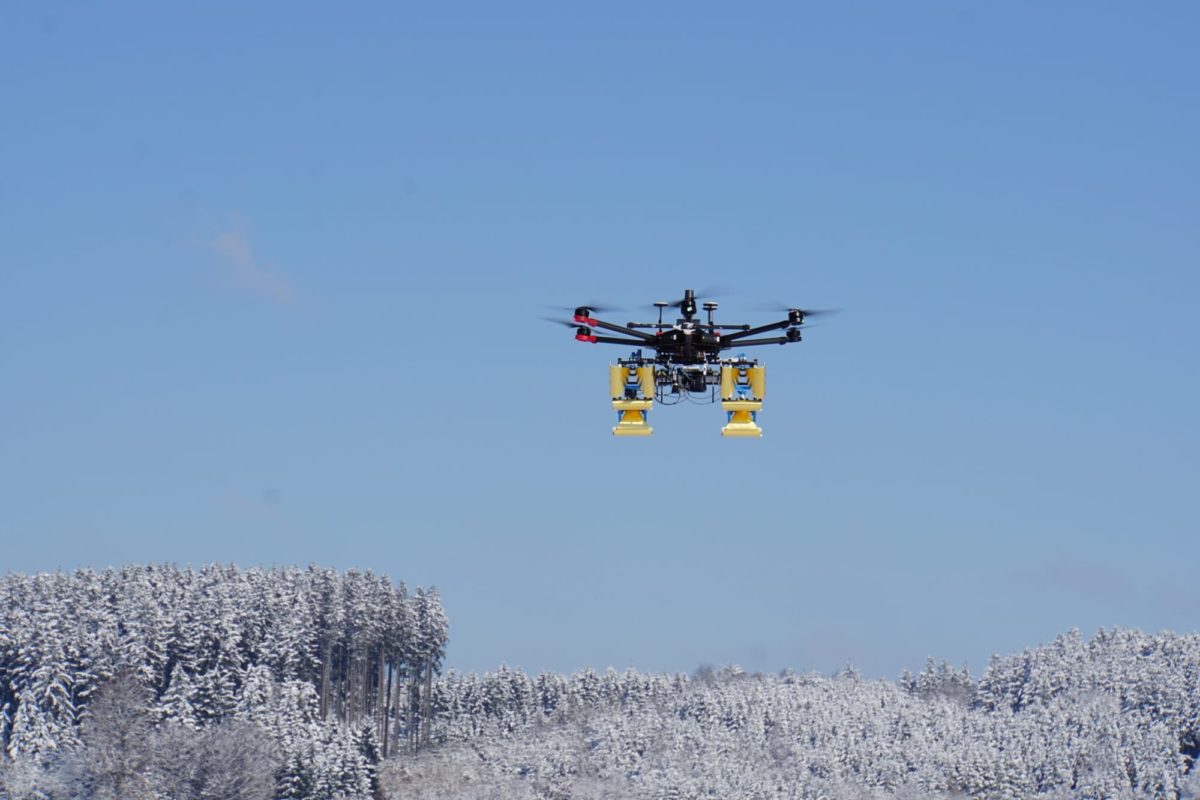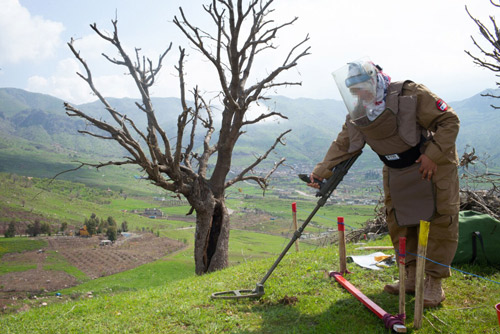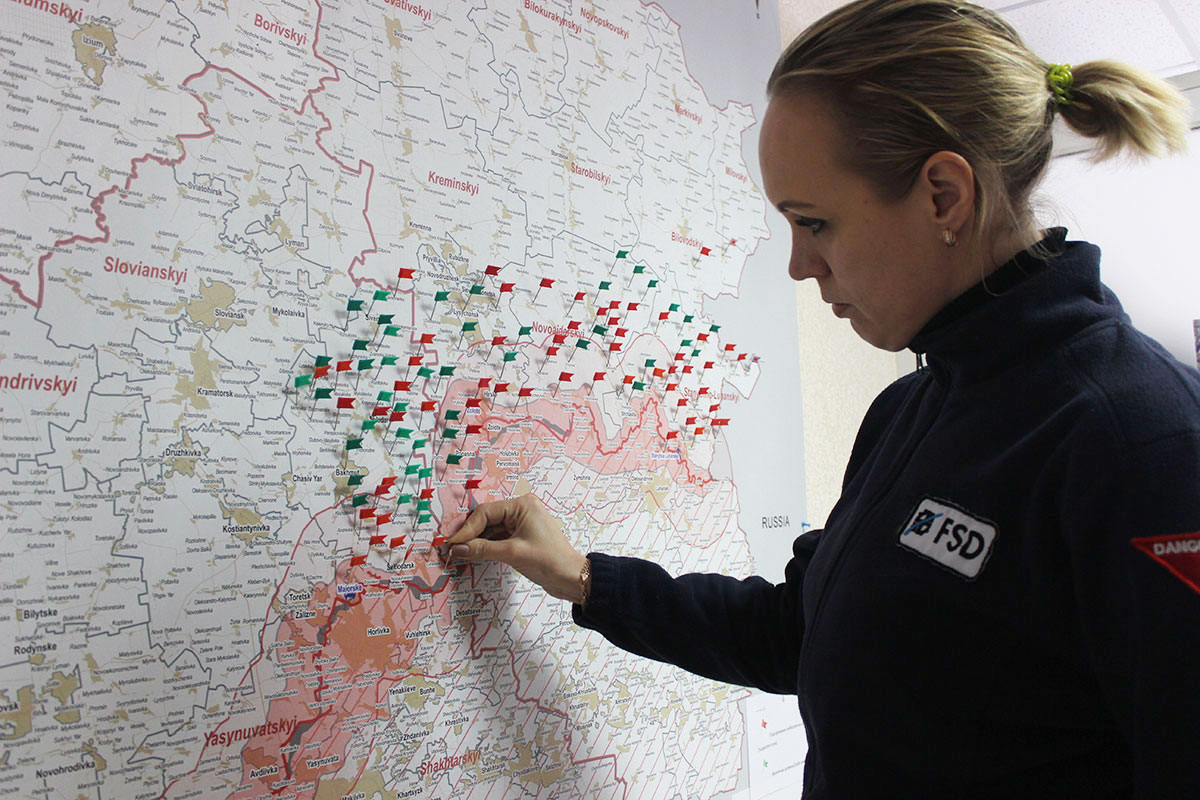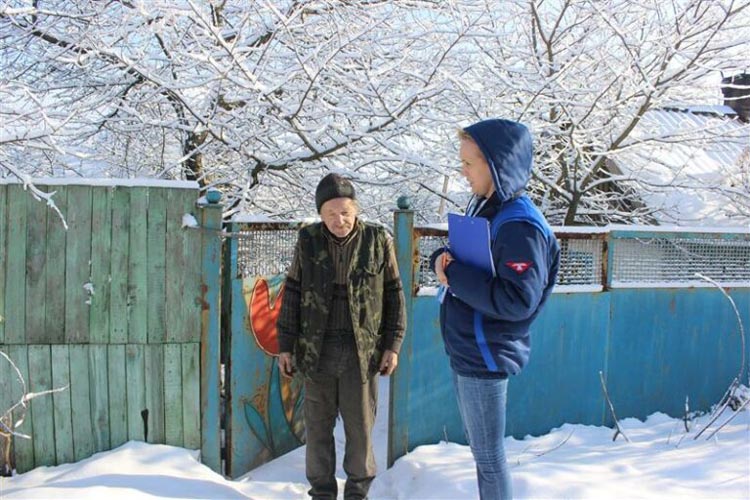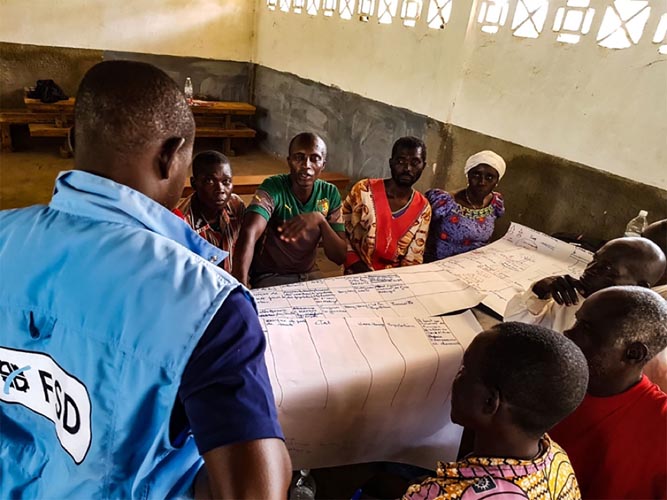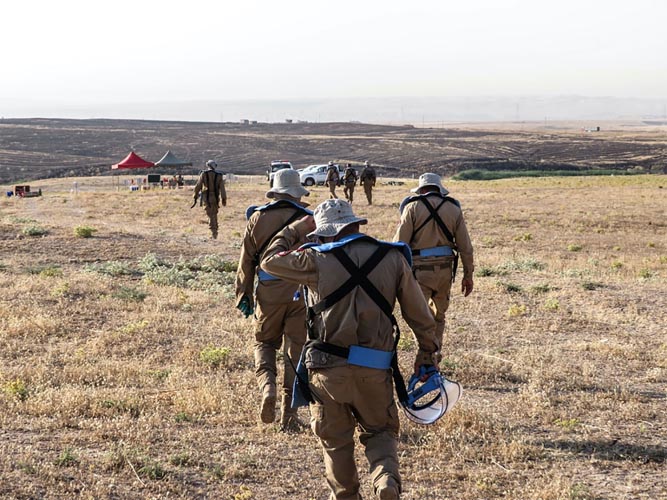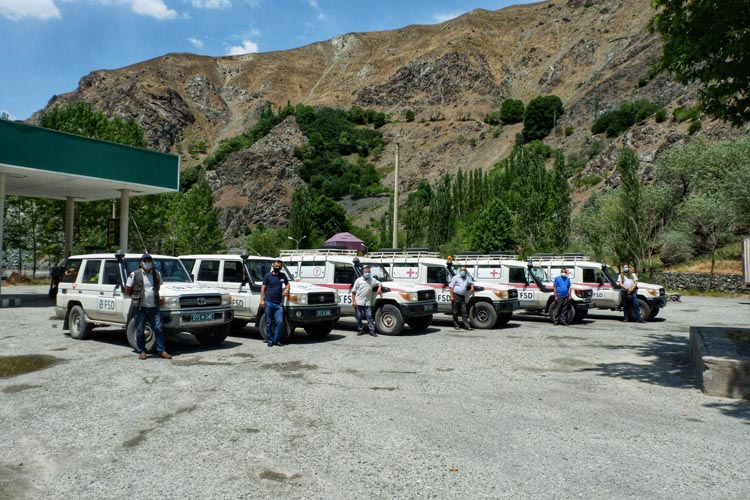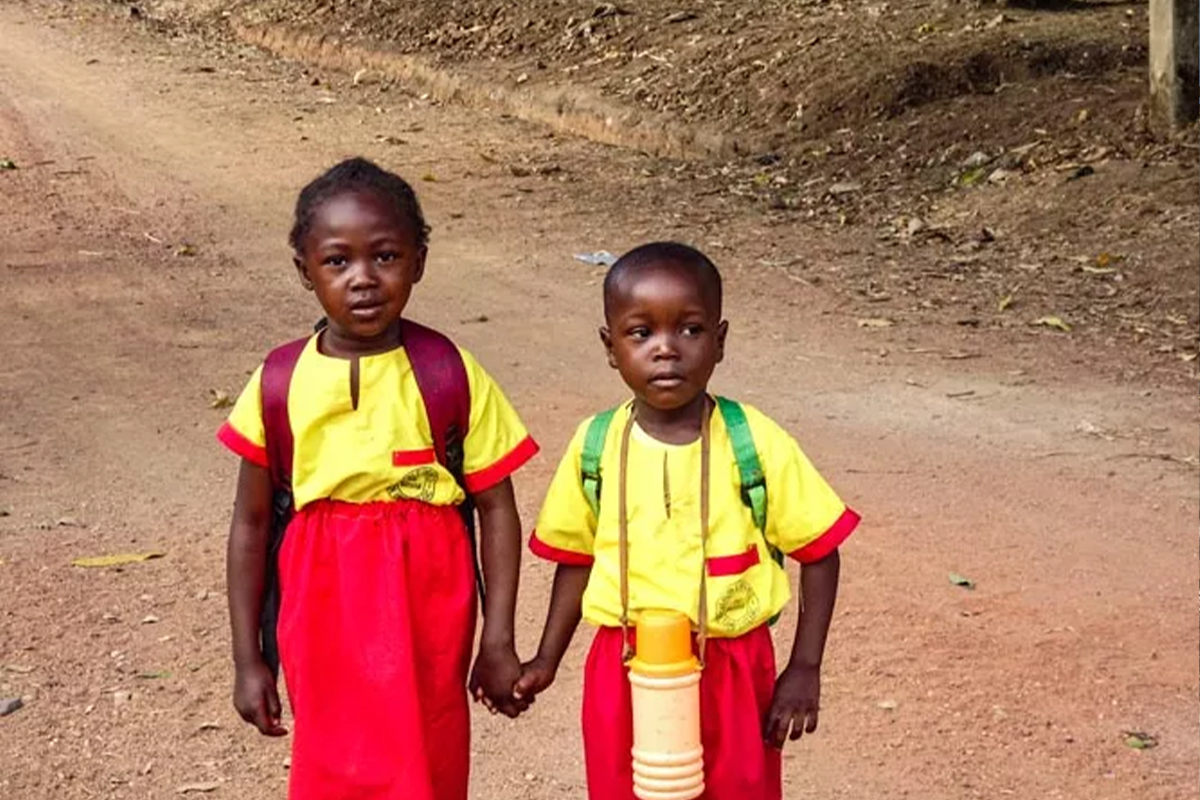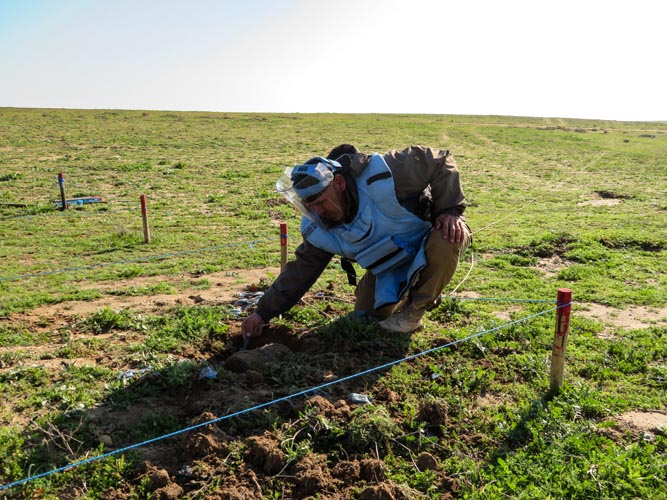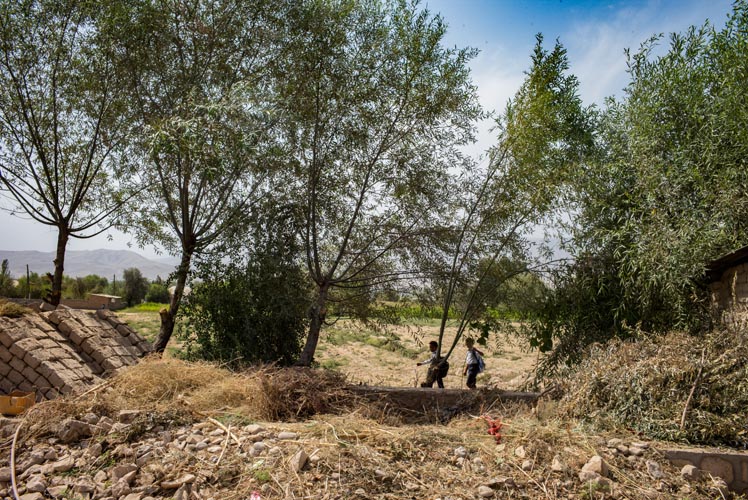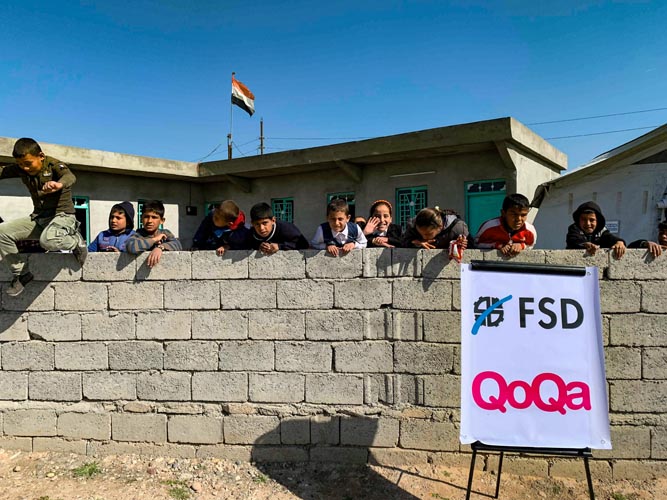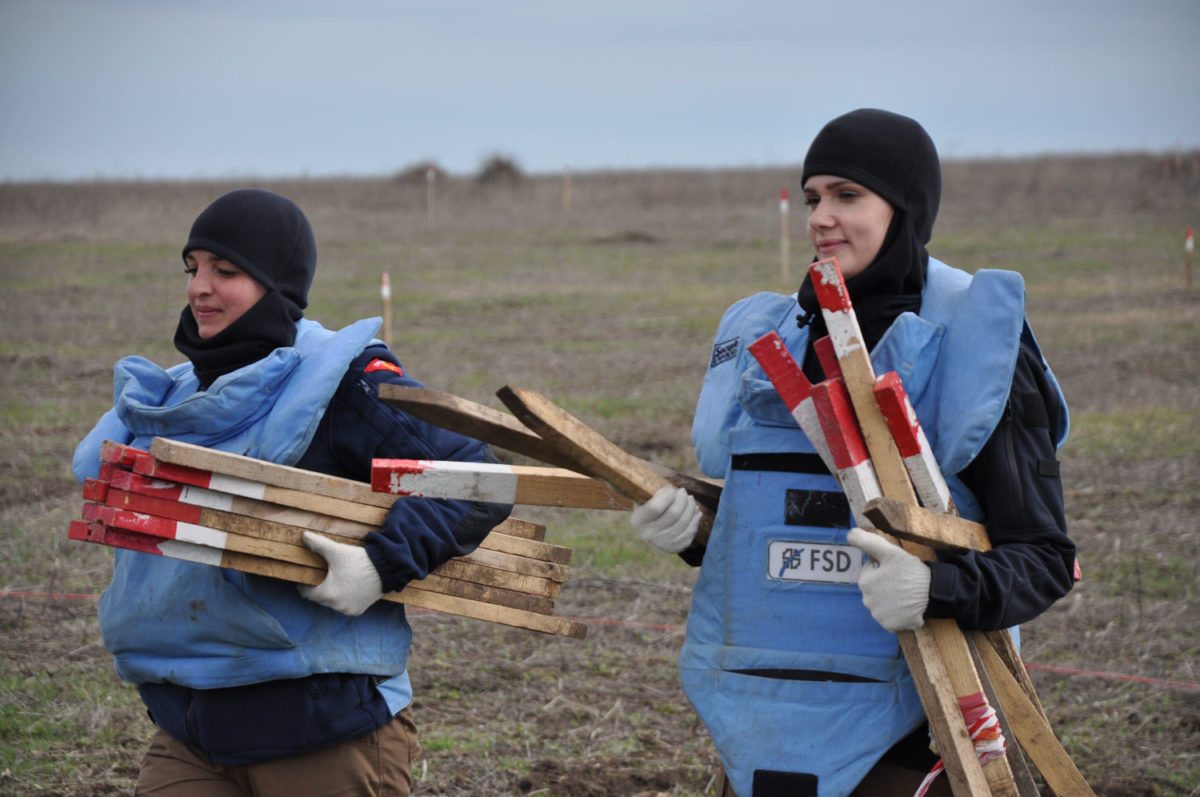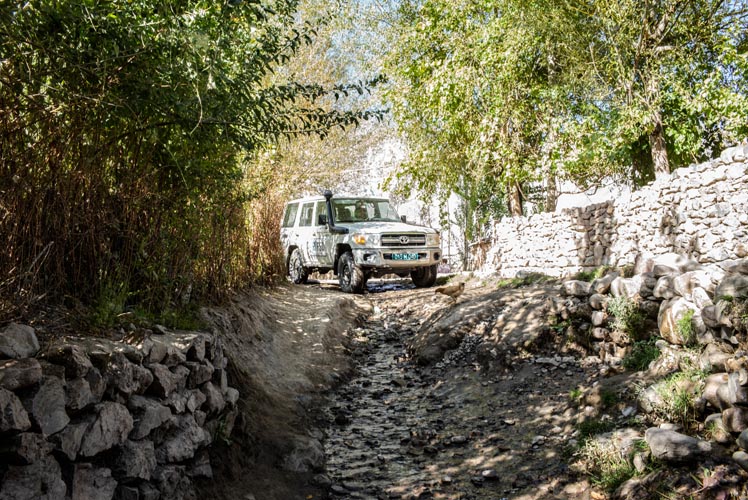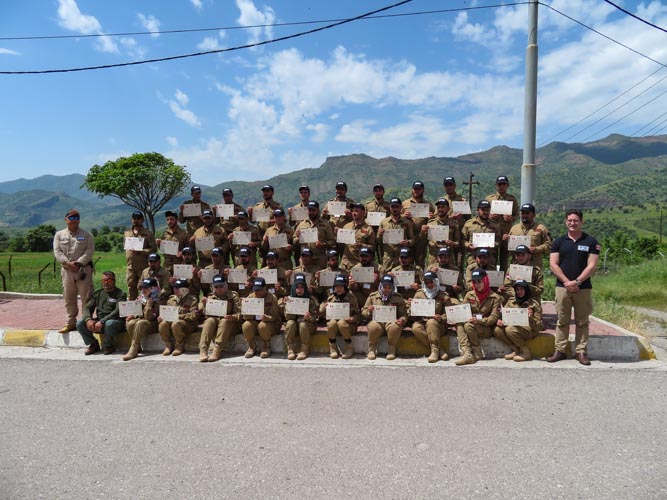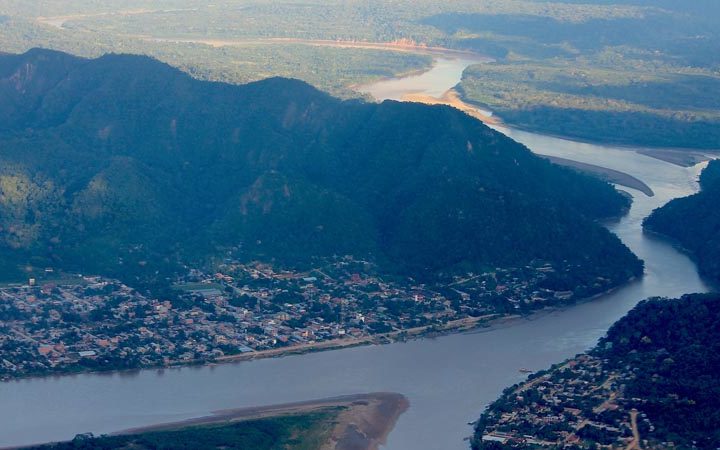News from the field
We regularly publish articles, stories and interviews about our humanitarian activities in different countries, as well as insights from the field.
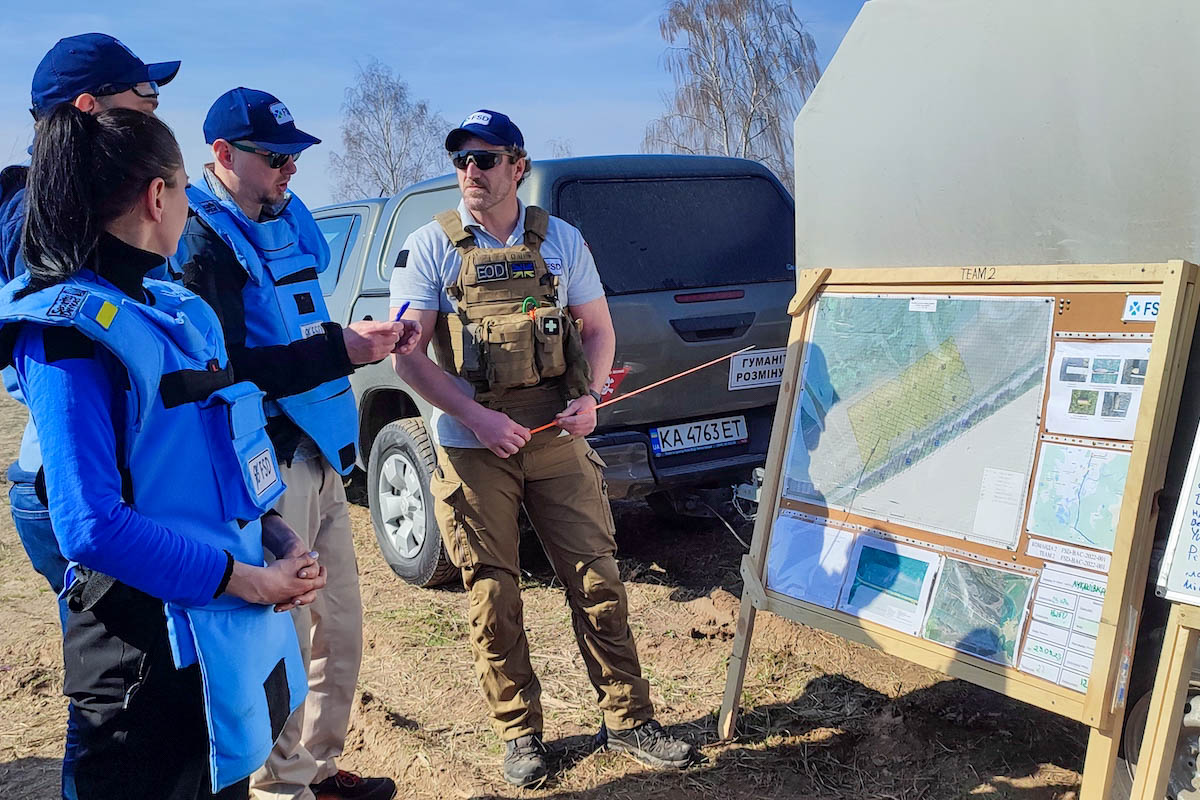
Every morning the teamleaders hold a briefing with the demining team to discuss the clearance methods that will be used. (Ukraine, 2023)
News
Latest articles
Tourist destinations still marked by the scars of war
Cambodia, Sri Lanka and Colombia are dream destinations for many travellers, with their beaches, tropical forests and rich historical and cultural heritage. Yet behind these idyllic landscapes lies a lesser-known reality: these countries are still contaminated by...
Beyond demining: preparing to hand over the reins
In Ukraine, demining progresses every day. Fields are once again cultivable, roads are reopening, and schools are welcoming children back. But the task ahead remains vast — and the war is not over. In some regions, bombs, rockets, shells and other unexploded...
A journey into the unknown – Ukraine 2025
Catherine André, FSD Board Member Report on a visit to Ukraine with FSD (Fondation suisse de déminage) In May 2025, newly appointed FSD Board Member Catherine André joined Vice-President Thierry Burkart and FSD Director Hansjörg Eberle on a field visit to...
On the Tajik-Kyrgyz border, scarred lands begin to heal
In the villages of Shurob and Chorkuh, in northern Tajikistan, the scars of civil war and regional tensions are still visible. These communities lie directly along the border with Kyrgyzstan. In 2021, armed clashes broke out in the area, forcing families to flee....
Quiz: Do you have an eye for spotting danger?
Hidden along paths, in forests, and in fields, mines and explosive remnants of war can easily go unnoticed. Learning to recognise them is vital for communities living near contaminated areas to protect themselves against accidental explosions. Would you recognise the...
Training Veterans in Humanitarian Demining
In Ukraine, thousands of former soldiers injured in combat face the challenge of reintegrating into civilian life. FSD is contributing to a reintegration project through humanitarian demining, organised by the United Nations Development Programme and the Ukrainian...
Reinforcements in Ukraine: our new four-legged recruits have arrived!
We are delighted to introduce our newest colleagues: TNT, Dodo, Zara, Szabi, and eight other mine detection dogs have joined our teams in Ukraine to strengthen our mine clearance efforts. These Malinois and German Shepherds, with their exceptional sense of smell, are...
News from Iraq (October 2024)
The clearance teams, during the month, continued their exceptional work, clearing 665,125 m2 and rendering safe 83 improvised explosive devices and 18 unexploded ordnance. We reached a significant milestone during the month by clearing 32 million square meters of land...
Accidental explosions: what are the high-risk behaviours?
"Do not touch, do not approach, report it." Our risk education teams spread this vital message every day to prevent accidents. While almost one in three countries in the world is contaminated by landmines and explosive remnants of war, thousands of victims are...
News from Iraq (September 2024)
During the month, the clearance teams, while continuing their excellent work, cleared just over 585,000 m2 and rendered safe 59 improvised explosive devices and 36 unexploded ordnance. Our teams have recently received a new task order in Dibis District. It is expected...
Crops of hope for conflict victims in Colombia
After years of armed conflict, Colombia counts more than 8 million displaced people. Forced to rebuild their lives in their place of refuge, these men, women and children often have to overcome social exclusion and poverty. Two thirds of displaced people have no...
News from Iraq (August 2024)
Safely completing the manual clearance of over 500,000 m², FSD clearance teams also successfully made safe 40 improvised explosive devices (IEDs) and 16 unexploded ordnance (UXOs), showcasing their excellent work throughout the month. The teams' significant efforts...
News from Iraq (July 2024)
Despite the challenging hot weather, FSD clearance teams in both Dibis and Makhmour Districts achieved excellent results during the month. In the Kubaiba village, Dibis District, a manual clearance team finished the clearance of a local cemetery during the month,...
A mined cemetery rehabilitated in Iraq
Ten years ago, the village of Kubaiba fell into the hands of the Islamic State group. Located north-west of Kirkuk in Iraq, on the front line, the village was the scene of violent fighting. Some villagers attempted to flee, but not all succeeded. Thirty-five people...
News from Iraq (June 2024)
This month in Iraq was marked by significant achievements. Despite the challenges of high temperatures, our teams continued to conduct clearance operations and raise awareness about the dangers of explosive ordnance. To combat the high temperatures this month, the...
World Environment Day: restoring land for a safer future
Armed conflicts not only leave an indelible mark on the lives of millions of people, but also devastate the environment, wildlife and biodiversity. Years after the fighting, mines and explosive remnants of war continue to contaminate the soil, affecting farmland,...
Mine clearance in the mountains of Mosul
Dear Reader, My name is Chris Hunter and I've been part of FSD’s team in Iraq for several years. As a Senior Technical Advisor, my primary role is to identify and neutralise improvised mines and other explosive remnants of war located by my colleagues. Today, I would...
“My father and my husband built our house”
Kamianka, a rustic settlement in Ukraine’s east, experienced brutal fighting during the summer of 2022. Following months of fierce combat, Ukrainian troops finally retook Kamianka as part of their wider counter-offensive that liberated large parts of Kharkiv Oblast...
International Mine Awareness Day: Protecting lives, building peace
International Mine Awareness Day is a reminder that mines and explosive remnants of war can still kill or maim for decades after they have been laid or fired. This is regularly illustrated by press reports of accidental explosions or discoveries of devices dating from...
“I was 9 when I lost my foot and part of my leg”
Hnfna is just 18 years old and lives in the steep, isolated mountains of Badakhshan in northern Afghanistan. When she was just a little girl, an accidental explosion seriously injured her while she was collecting firewood in the forest. At the time, Hnfna was unaware...
Deminer: we have an urgent mission for you!
Today, you're the one working on the minefield, and we’re counting on you to give us a hand! Which tools for which stage? Metal detector, base stick, tripwire feeler... They may look like gardening tools, but they're actually the basic tools of the deminer. Find...
They learn to read, to write and to recognise unexploded ordnance
Polina, Nastia, and Sophia are between 8 and 9. They live in a village located in the province of Chernihiv, in Ukraine. We met them at their school following a mine risk education session. Like her two friends, Polina took refuge with her family in an underground...
Yesterday a school teacher, today a deminer for FSD
Iskandarova Zebonisso comes from the district of Rudaki, in Western Tajikistan. A few years ago, the 31-year-old woman was working in a nursery school. Today, she locates mines and explosive remnants of war in the south of the country, along the Afghan border. As a...
Landmine goes click?
The Hollywood Landmine Myth by Markus Schindler The air is thick with tension as the sun begins to set. A small group of soldiers cautiously make their way through a field. Every step is deliberate, every movement calculated. They've been warned about the risk of...
Clearing mines and explosive ordnance, where do we start?
For deminers to be able to remove mines and unexploded ordnance from the ground as soon as possible, it is essential to provide them with precise knowledge of the area they are about to clear. This is the work of our non-technical survey teams, who intervene...
Distribution of seed bombs against explosive remnants of war in Geneva
On the occasion of the Good Deeds Day in Geneva, FSD has been invited to participate to an initiative of the Coop supermarkets for this day centered around solidarity. You will be able to meet our team all day on Saturday 6 May at the entrance of the Coop de...
Demining in Ukraine: the race against time
In Ukraine, in March 2023 alone, more than 100 civilians were killed or maimed by mines and explosive ordnance. With the arrival of a warmer weather, the number of accidents is likely to increase. FSD has drastically increased its staff and expanded its area of...
Colombia: Lettuce and cabbage to help mine survivors
Every year, civilians are killed or maimed by accidental explosions in Colombia. Nearly six decades of civil war have left the country littered with landmines and unexploded ordnance. The aftermath of accidental explosions disrupt the daily life of victims and their...
Clearing mines after an explosion
Yahidne, a village two hours north of Kiev, is now sadly known as a "martyr village" of the war in Ukraine. More than 300 inhabitants, including about 60 children, were locked up for almost a month in a basement last March. Some of them died during their...
Once upon a time FSD…
The story begins in the Swiss city of Fribourg. In the 1990s, millions of people saw on their TV screens images of countries contaminated by anti-personnel mines and their dramatic effects on the population. In 1997, the issue became a major international concern...
Our teams have been reinforced and are now deployed in the province of Chernihiv
Located between Kiev and the Belarusian border, the province of Chernihiv was targeted in the early days of the conflict and was heavily shelled throughout March 2022. Hostilities have now ceased, but much of the province is destroyed and contaminated by remnants of...
Capacity building: our partner in Iraq is now accredited to clear improvised mines
Since January 2021, our experts in Iraq have been training, advising and mentoring a local NGO, Shareteah Humanitarian Organization (SHO). The ultimate goal of this project is to enable Iraqis to undertake the demining of the country independently. This project is...
International Day for Mine Awareness and Assistance in Mine Action
Together against mines and explosive remnants of war Every year, thousands of civilians are killed or maimed by mines or unexploded ordnance. A single step or contact with these devices is enought to trigger a deadly explosion. More than 60 countries are currently...
Our operations in Ukraine – March 2022
In March 2022, following the intensification of the conflict in Ukraine, FSD stopped its mine action activities to support Ukrainian civilians fleeing the conflict. 7-13 March FSD supported volunteers, who transported women and children to the Polish border with a...
Machine gun ammunition at the waste dump
In eastern Ukraine, the poverty caused by the armed conflict has led many people to collect and sell scrap metal to earn a little more money. This is a risky activity, which exposes them to landmines and unexploded ordnance. One day someone brought me an old bucket...
Pastor and risk education volunteer
" I take advantage of my sermons to talk about unexploded ordnance " Joselito Remedios, 54, is a pastor and an explosive ordnance risk education provider. For the past year, he has been a member of the Fondation suisse de déminage (FSD)’s volunteer team in the...
“We all found at least one old horseshoe”
In Ukraine, around 20 FSD deminers are currently working in the Donbass region, where an armed conflict has been going on since 2014. Roman, Stanislav and Igor are part of the team deployed in Stara Mykolaivka. A few years ago, this locality used to be a Ukrainian...
Deminer’s anecdotes
Some time ago, FSD was invited to visit a sixth-grade class at the Florimont Institute in Geneva to talk to students about humanitarian demining. After the presentation, the children asked questions which were recorded and passed on to our deminers in the field. This...
What does an improvised mine look like?
Each year, thousands of civilians lose their lives and are injured during explosions from various weapons and ammunition: bombs, rockets, mines, etc. Involved in almost half of the cases in 2020 are “improvised explosive devices”, tinkered with everyday objects and...
Can drones be used for demining?
In the past 10 years, drone technology has developed dramatically and their use has widened. From ambulance drones, to window cleaning drones and sushi delivering-drones, these flying robots seem to be able to do almost anything. Could drones even replace deminers in...
Deminers answer Jack and Valentine’s questions
Some time ago, FSD was invited to a class at the Florimont Institute in Geneva to talk to students about humanitarian demining. The children, aged between ten to eleven, were very attentive to the presentation of FSD’s director, Hansjörg Eberle. After the...
Demining: women make their mark
Humanitarian demining has long been seen as a rather masculine field. Today, mentalities have changed and many organizations have mixed or all-female teams. FSD trained its first female deminers 15 years ago in Sri Lanka, and recently established a demining team...
Lands poisoned by obsolete pesticides
Old stocks of pesticides have leached into soils and rivers and threaten the health of Tajiks. FSD has made good progress in clearing the polluted land from the village of Oykamar, one of the most contaminated locations. An awareness campaign was also carried out...
The challenges of winter demining
In some of the countries where FSD operates, climatic conditions fluctuate between extremes. The dry and scorching summers are followed by harsh winters where snow and rain fall in abundance. These variations not only greatly affect the daily lives of the inhabitants...
Infrastructure for peace in Bangui and Bouar
In a post conflict environment, humanitarian organisations help to provide vital services and protection to a country's population; this then transitions to longer term development activities. But the transition can take time. FSD's unique experience operating across...
Our deminers are back in the mine fields
In August, Iraqi government COVID-19 restrictions on NGOs began to lift and mine action organisations were allowed to start back to work with a 25% capacity. FSD mobilised two full teams in Kudila village, Makhmour District, Nineweh Province; this included refresher...
Kindergartens bear the traces of war
An armed conflict has been raging in the Donbass region of Ukraine since 2014. Much of the infrastructure located along the frontline was destroyed or damaged by artillery and mortar fire, including dozens of schools and kindergartens. For the past 10 months, FSD...
FSD helps the most vulnerable of Teusaquillo
In Colombia, FSD continues to help OACP Descontamina Colombia, the national mine clearance authority, to develop and implement information management solutions. The COVID-19 pandemic has made work more difficult, since now an extra layer of information is needed to...
Mine clearance activities resumed in Darwaz-E Bala
Since 2012, the Swiss Foundation for Mine Action (FSD) has been hard at work in Afghanistan clearing priority minefields, clearing mines from combat areas and conducting non-technical investigations into suspected minefields. Darwaz-e Bala, a remote region in...
FSD mobilizes to slow the spread of the virus
The situation with regard to the COVID-19 epidemic differs from country to country in the regions in which we operate. With this in mind we have taken the decision to refocus and adapt our work to the current crisis in the Central African Republic in order to support...
School rehabilitation continues despite the crisis
Ukraine has been in quarantine since 12th March. The COVID-19 crisis has added extra pressure to the already limited economy in the east of the country, which has been enduring armed conflict for over six years. This has caused a collapse of basic services in a number...
Mine clearance, key to the resumption of agriculture
For the past four years, FSD has worked at clearing mines from areas recently liberated from ISIS in central and northern Iraq. Most of the beneficiaries targeted by the program base their entire income on agricultural activities, which have stopped due to the ISIS...
The scourge of obsolete pesticides in Oykamar
FSD has been active in Central Asia since 2003, especially in Afghanistan, Kyrgyzstan and Tajikistan. We have undertaken a range of activities, including mine clearance, destruction of weapons and ammunition stockpiles and environmental impact studies to assess levels...
The forgotten children of Darwaz
Throughout its time in Afghanistan, FSD’s aim has been to identify and eliminate the risks posed by explosive contamination which affects surrounding communities; and ultimately to contribute to more prosperous economic and social development in the cross-border...
Qoqa rallies to clear a village
As part of a major charity operation, the e-commerce community company QoQa raised 60,000 Swiss francs for FSD. This amount was dedicated to the decontamination of the Iraqi village of Nasr, located southeast of Mosul. Occupied between 2014 and 2016 by ISIS, it was...
The daily life of a deminer
Mine clearance is certainly not a trivial business. But that doesn't mean it is a daredevil job. Each step of the work is carefully planned, carried out and recorded using tried and tested routines. As a zero risk environment does not exist, risk must be minimized,...
Bees to the rescue of a mine victim
The isolated province of Badakhshan, located in the far north-east of Afghanistan, is still littered with anti-personnel mines left by Soviet troops before their withdrawal from the country in 1989. That is where we met Rahmi Ali, who lost his leg in an explosion 25...
How to become a deminer
At FSD Iraq, nearly nine out of ten employees are recruited and trained locally. Most knew nothing about mine clearance and had a whole different life prior to joining our teams. Some were teachers, farmers or housewives. Before finding themselves in the middle of a...
The challenges of demining in the jungle
Colombia, an earthly paradise of biodiversity, has been affected for more than five decades by an armed conflict which left behind numerous anti-personnel mines and other explosive devices. Today, demining the territory is hampered by certain obstacles and requires...
newsletter
- News from the field
- Demining videos
- Interviews with experts
- Events
- Job offers
